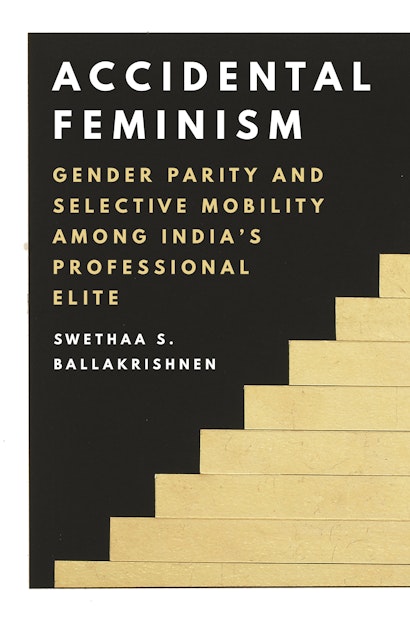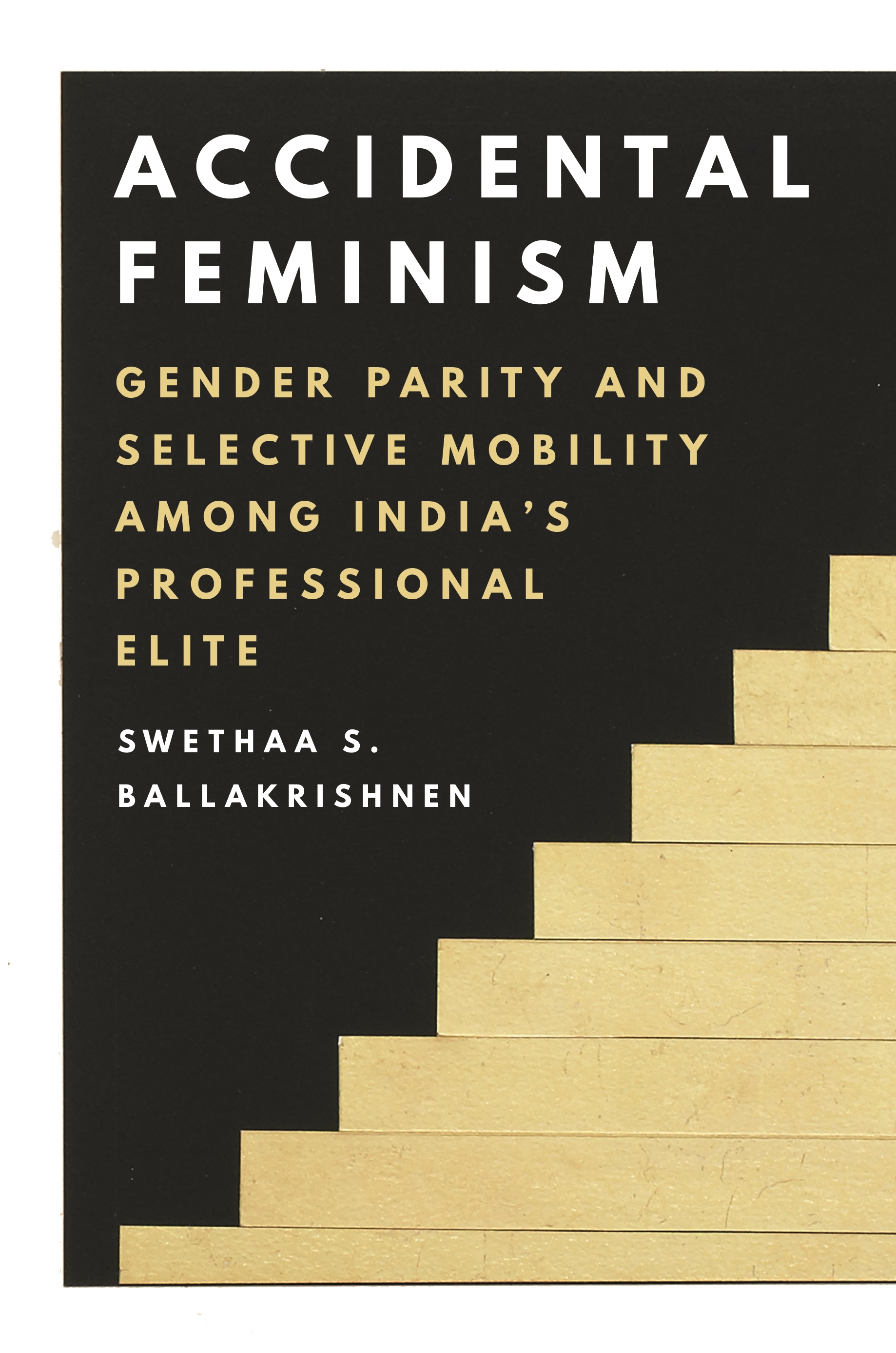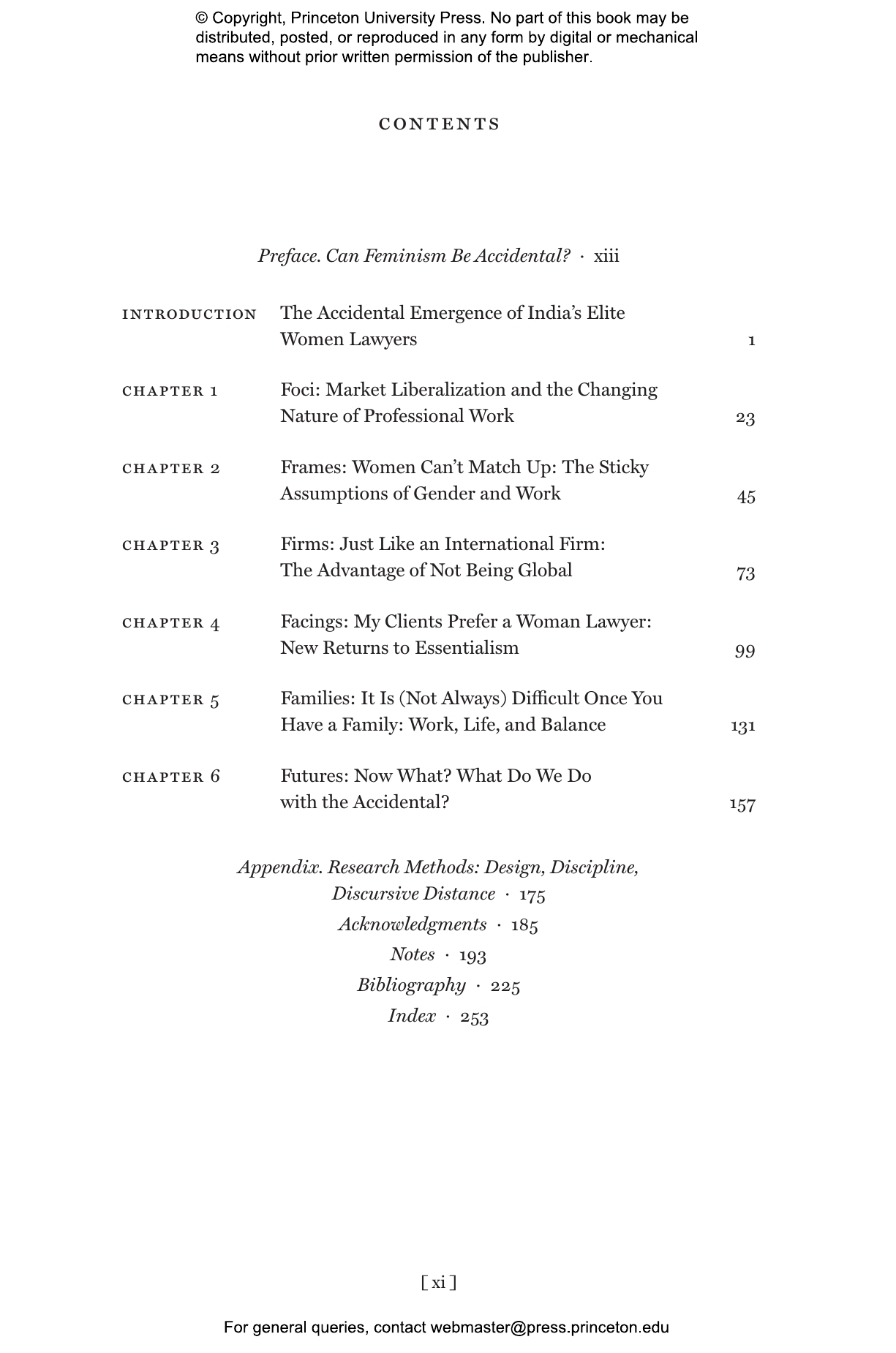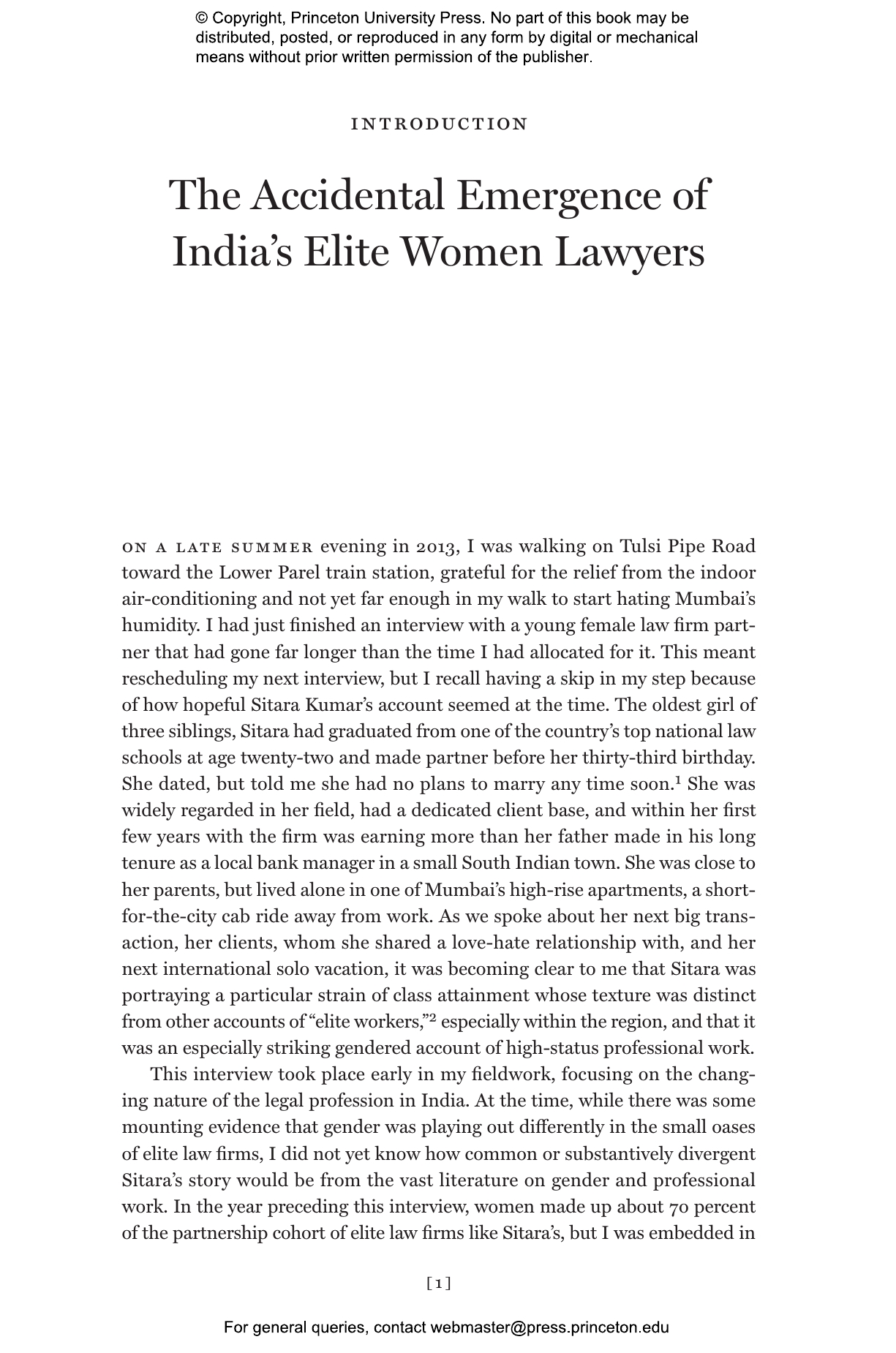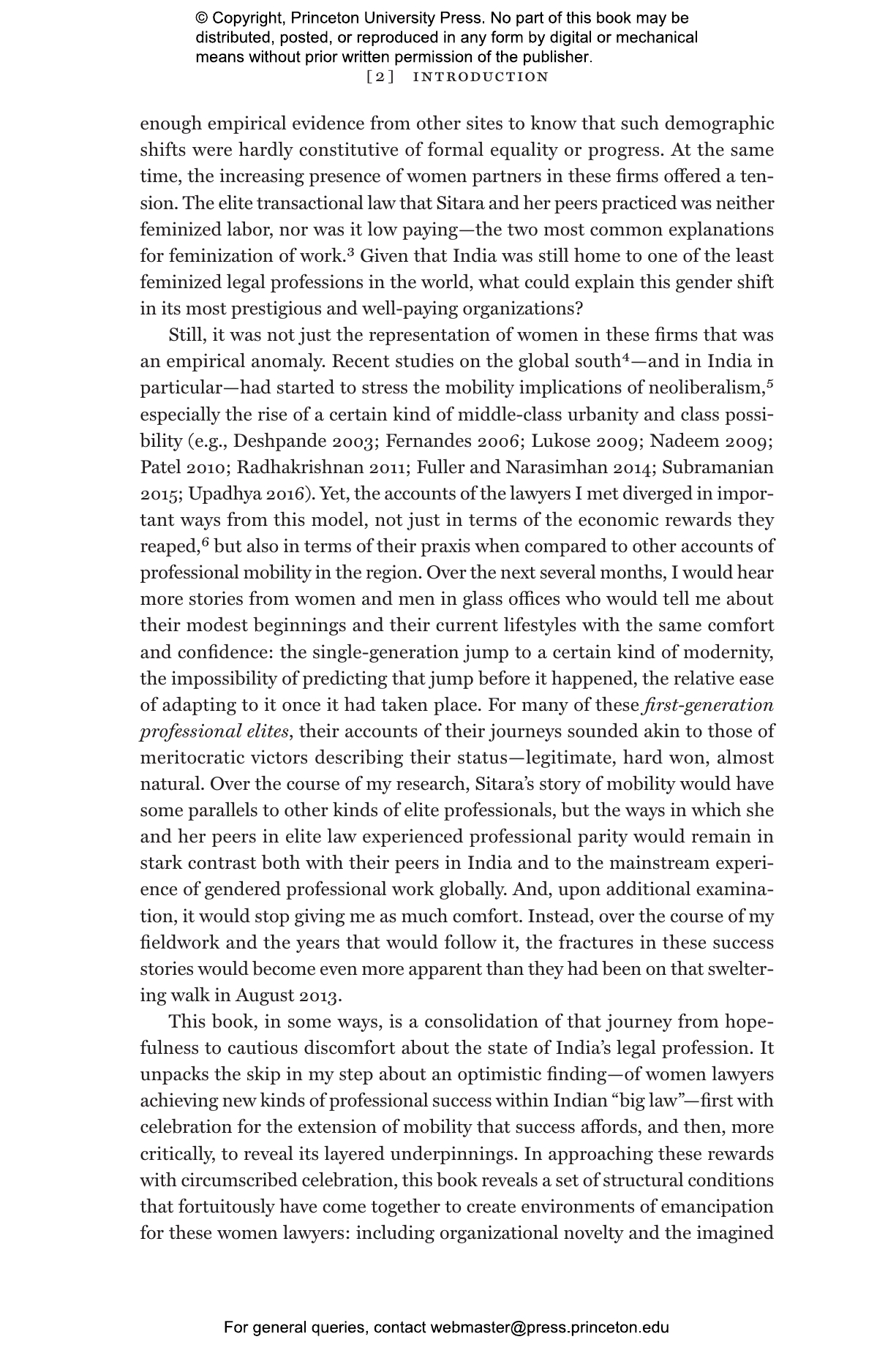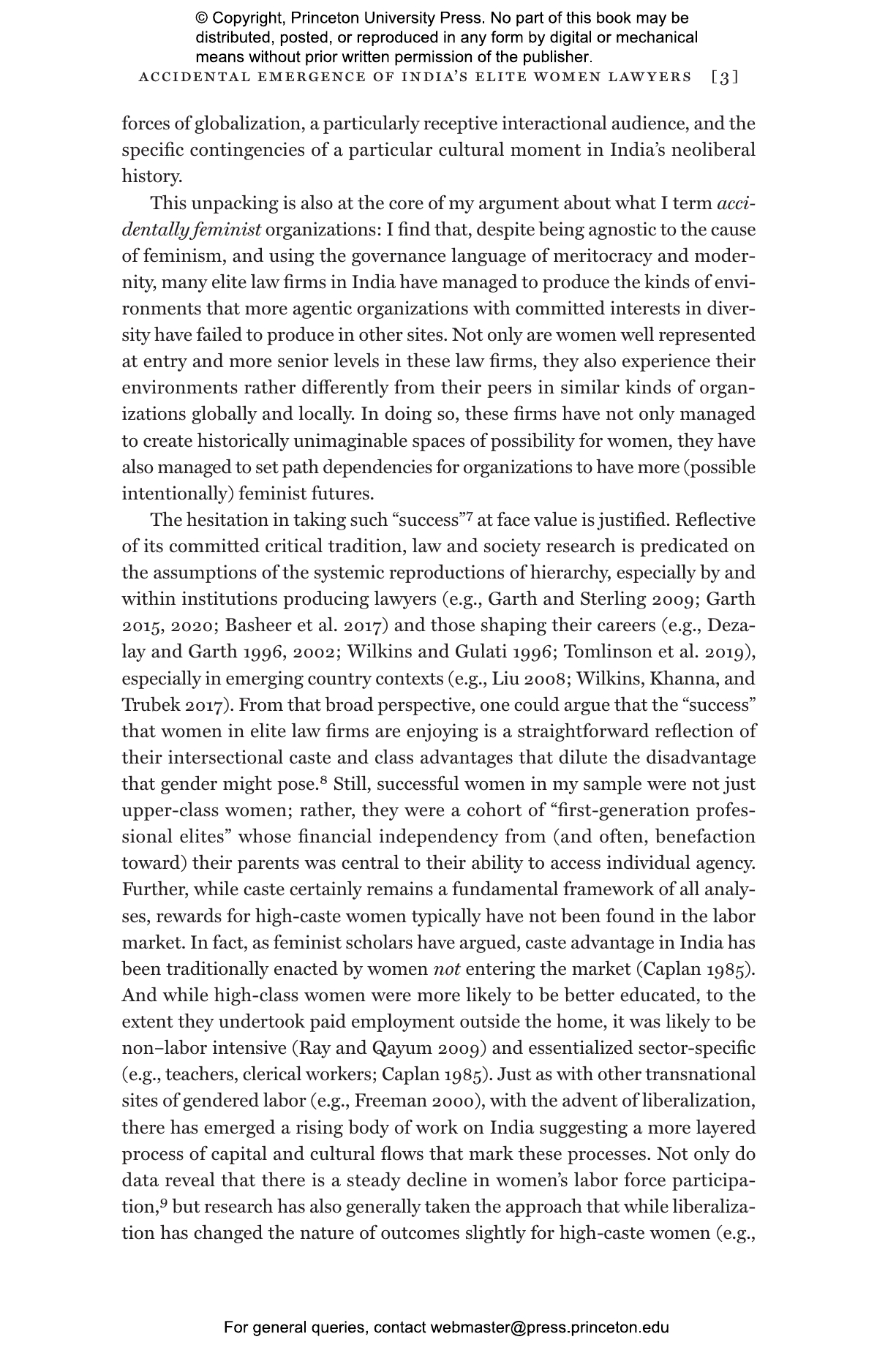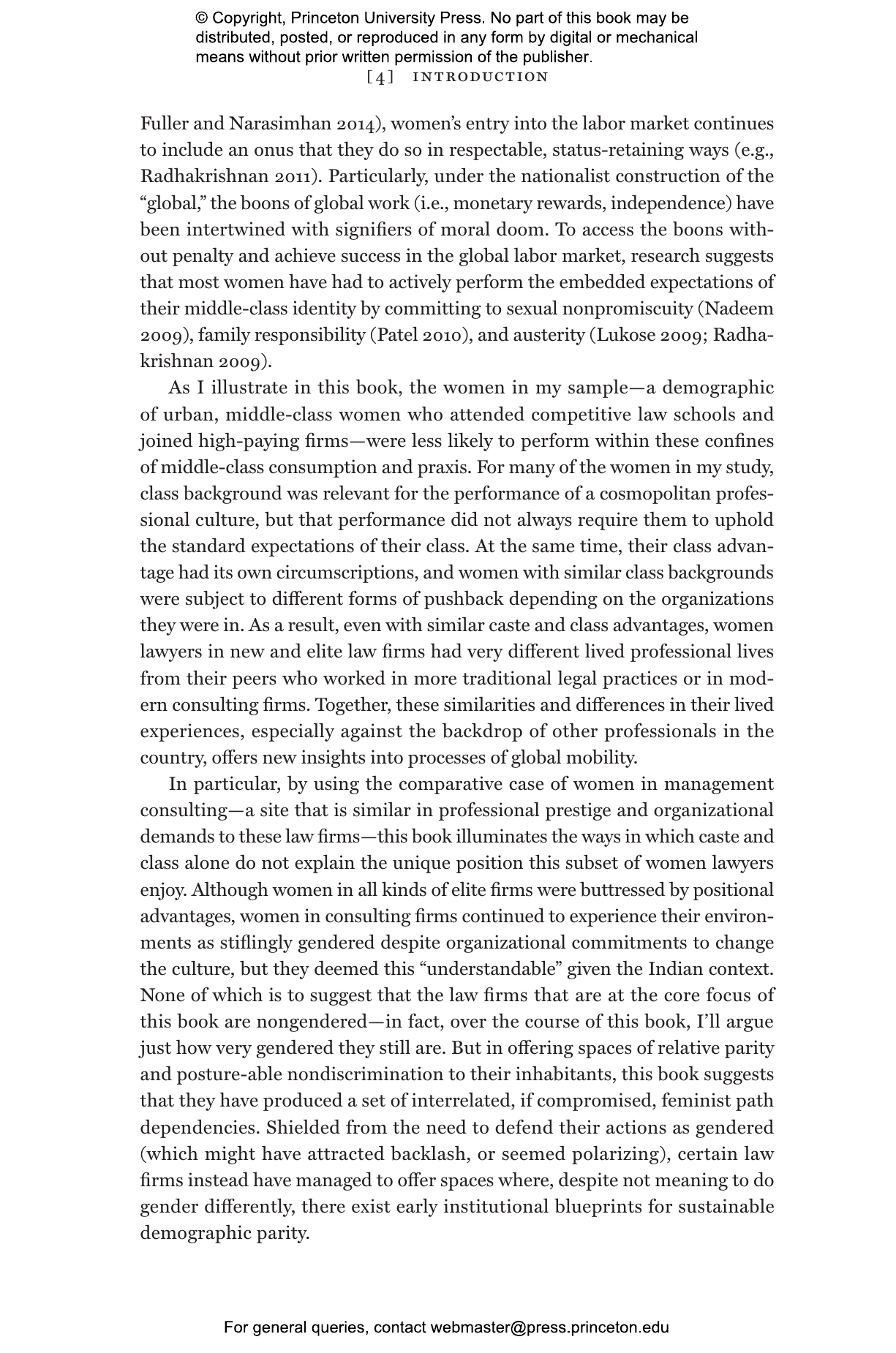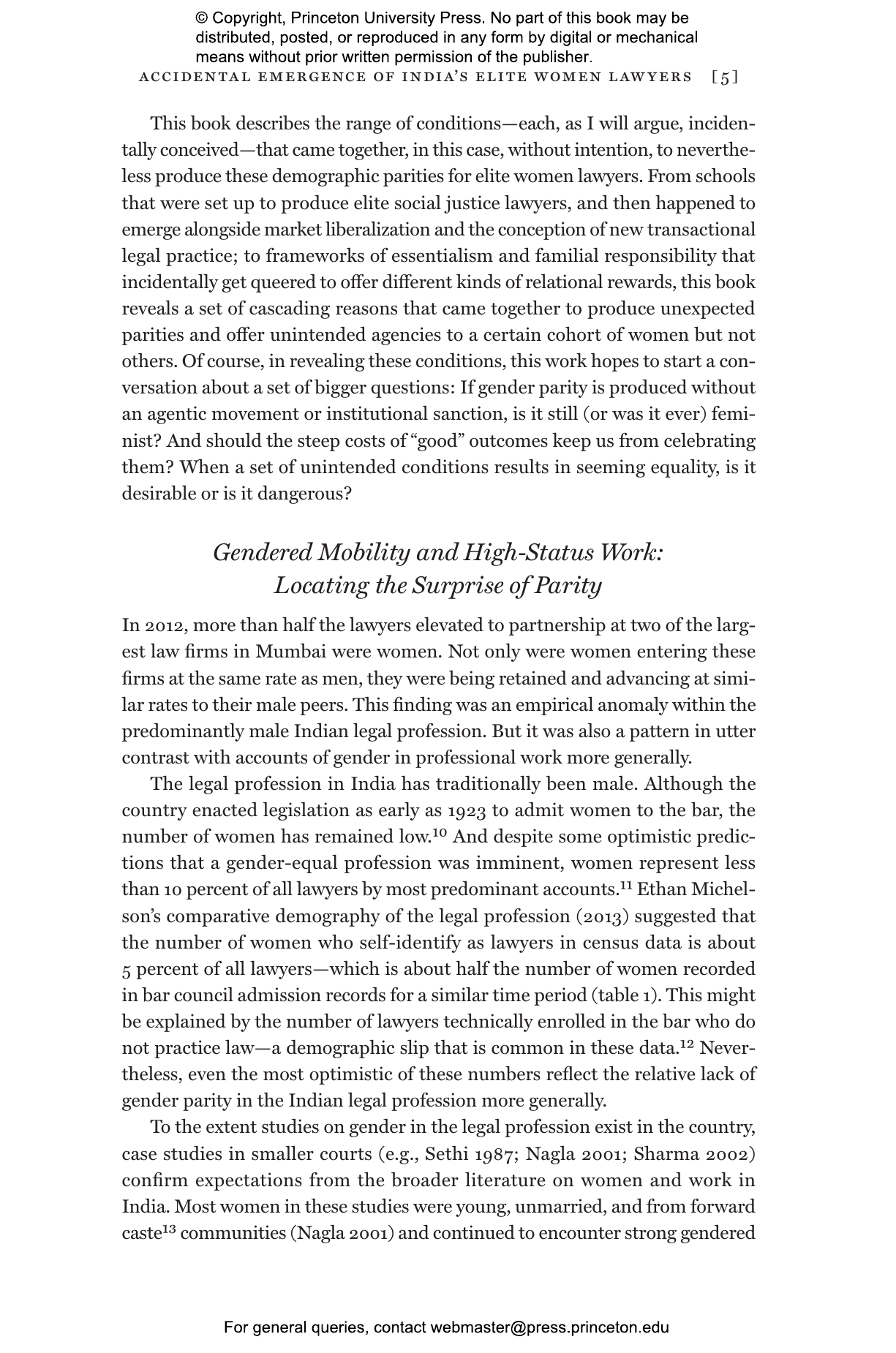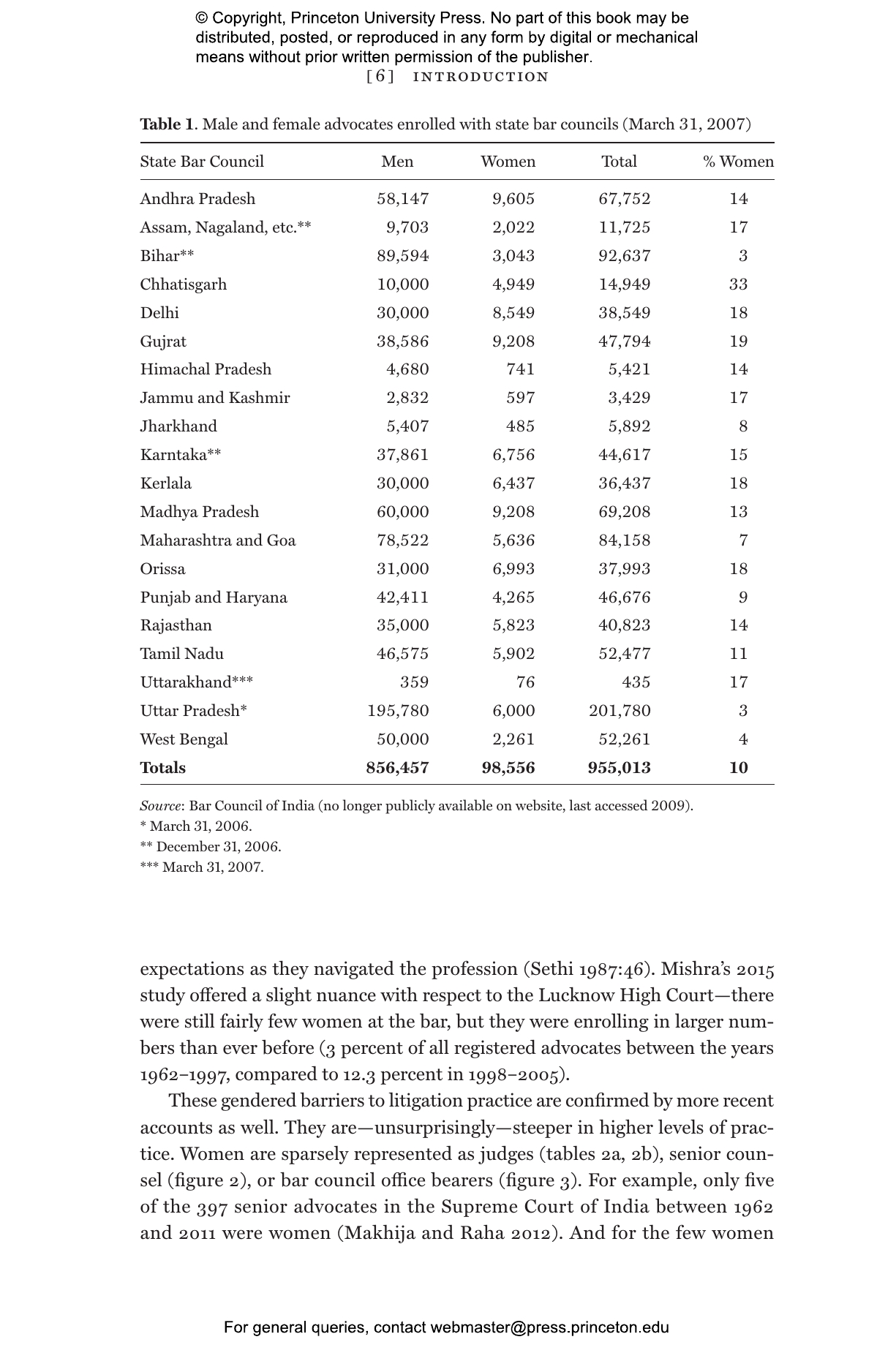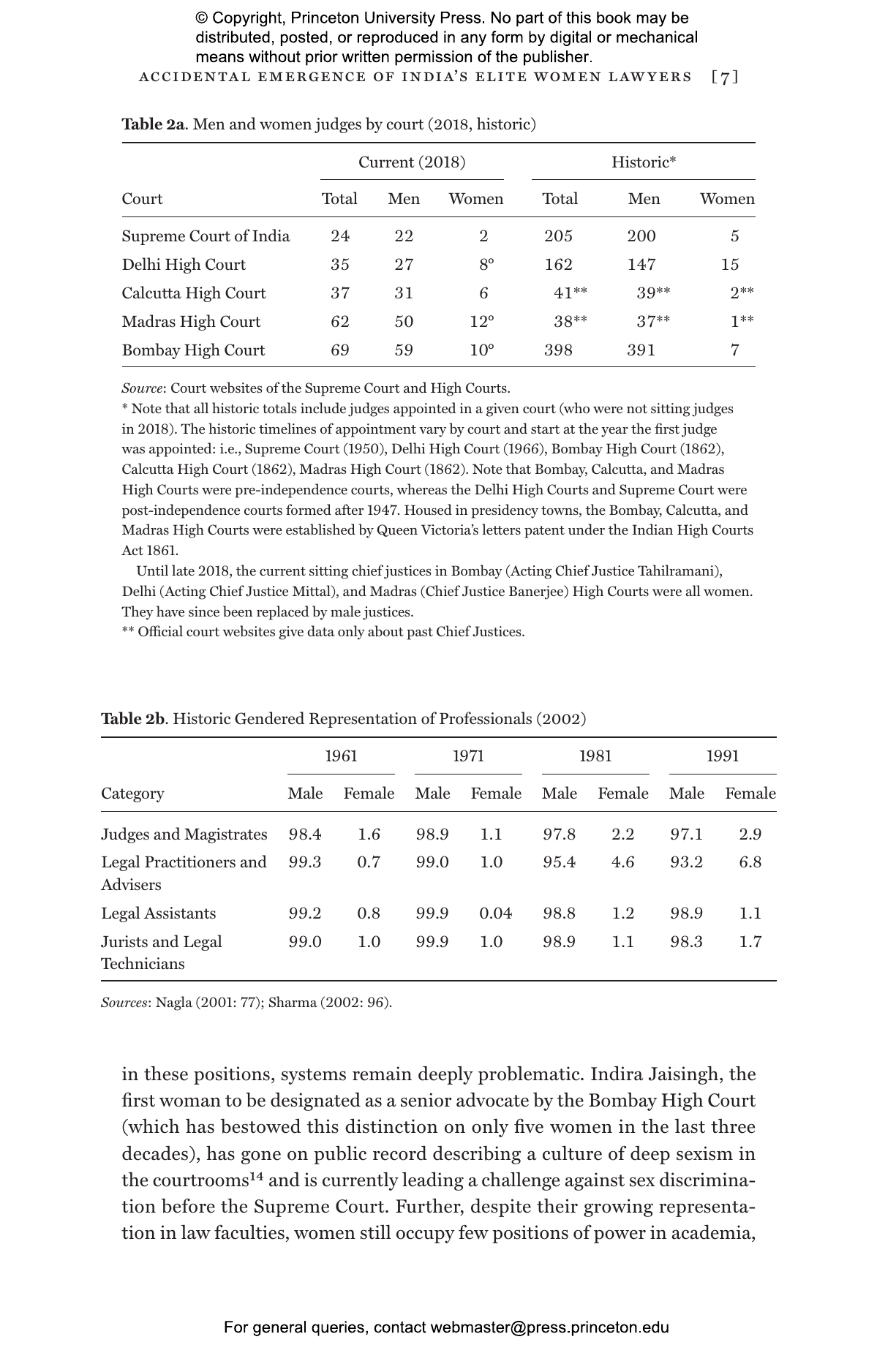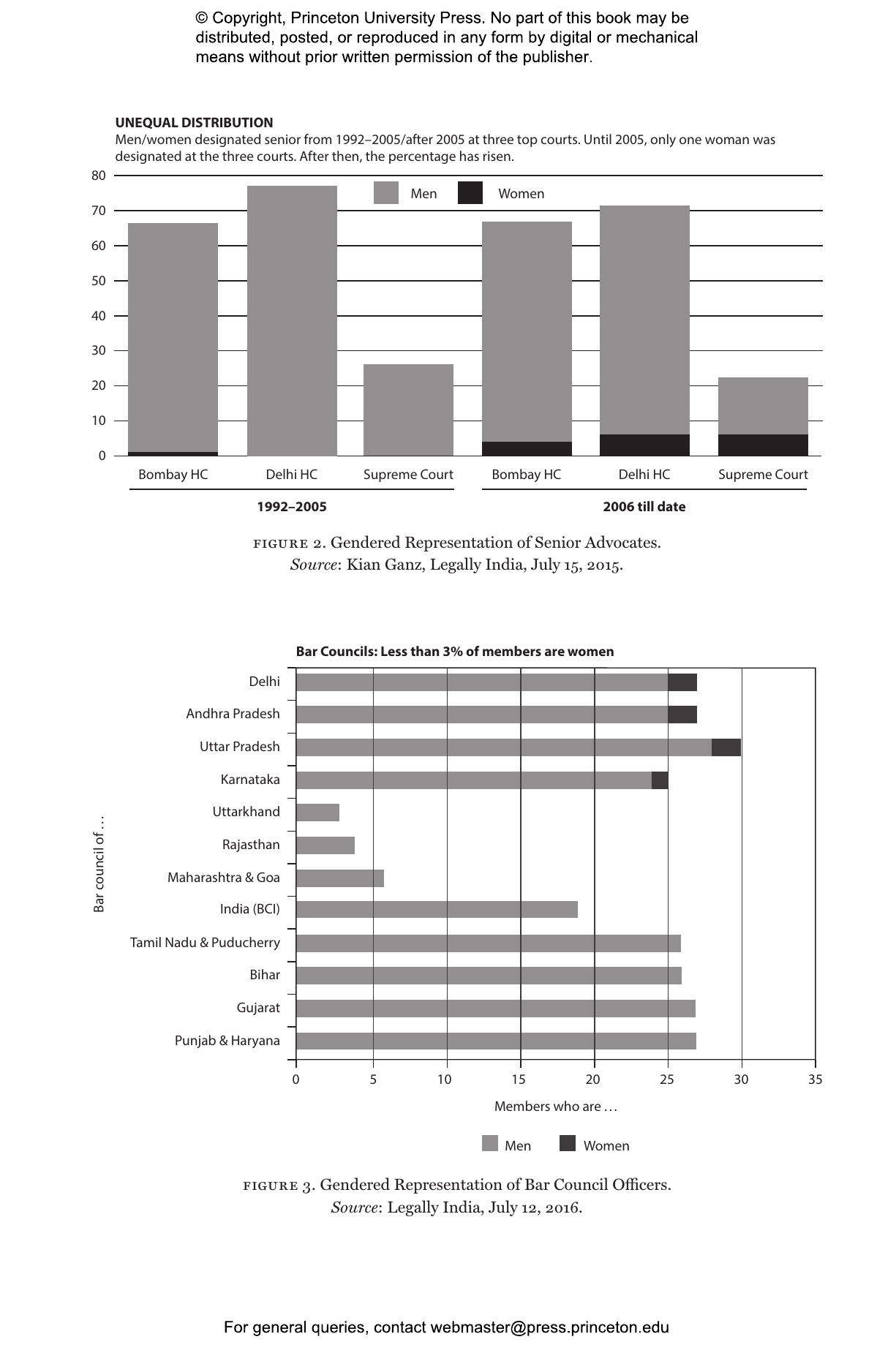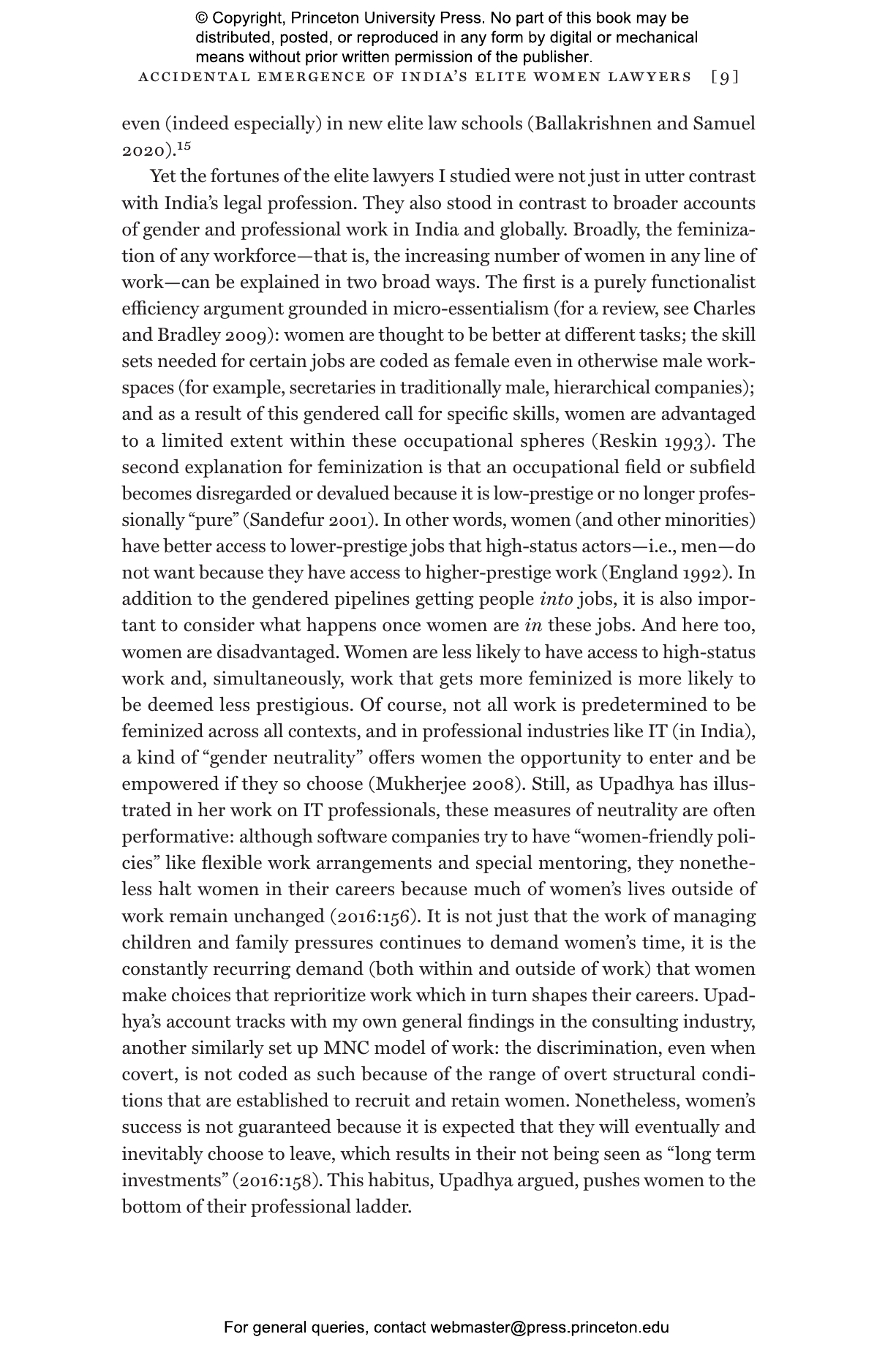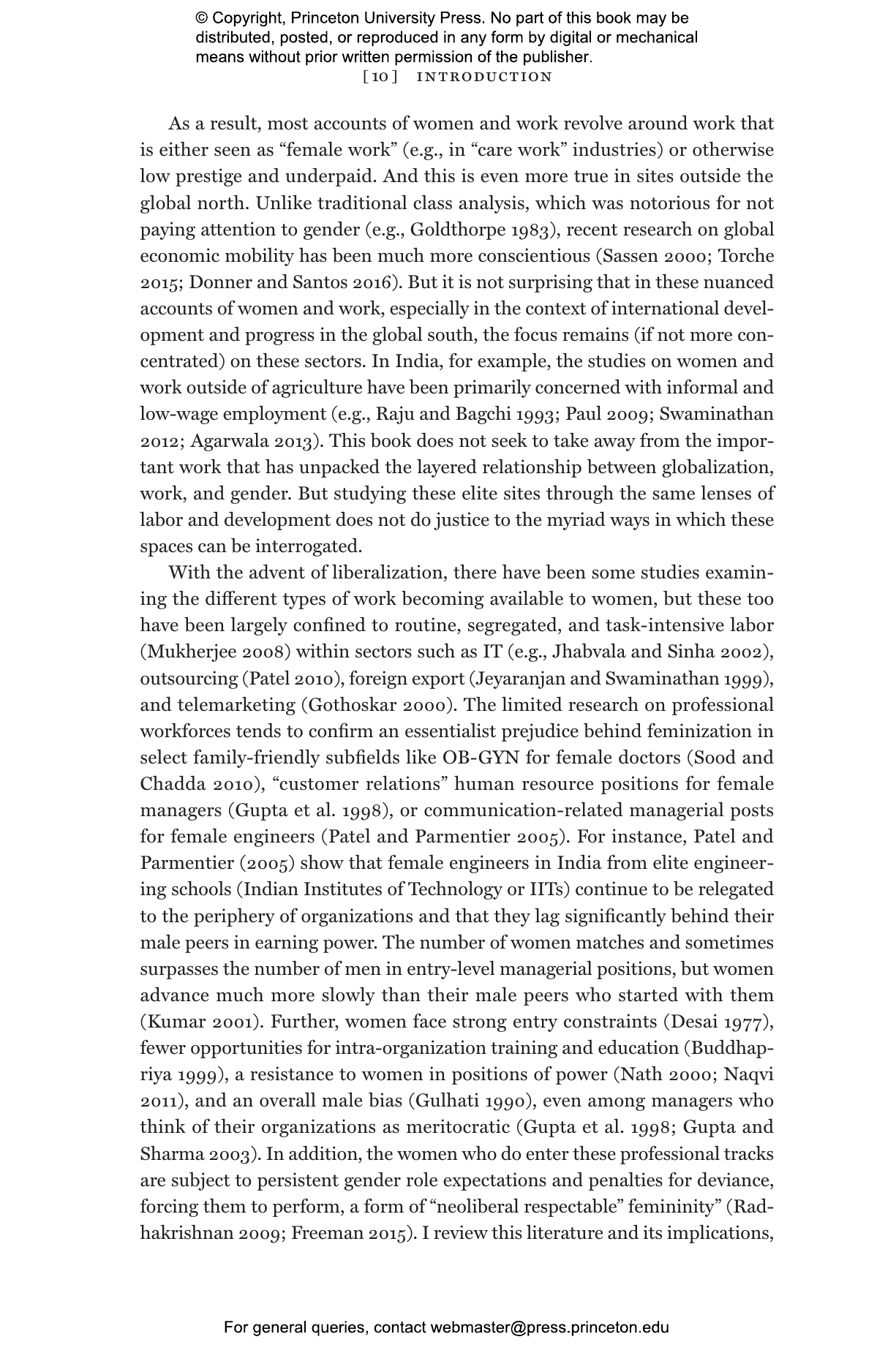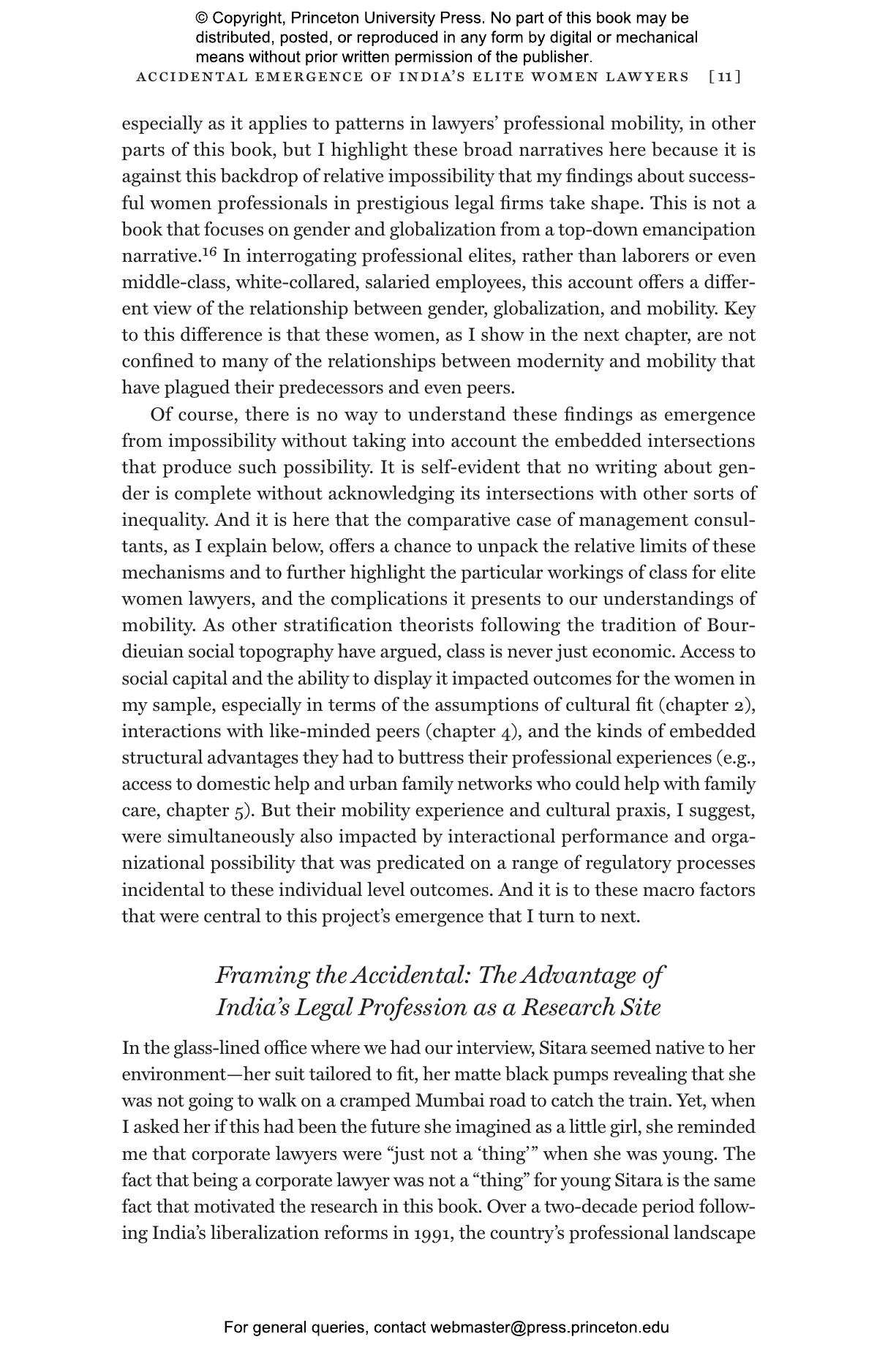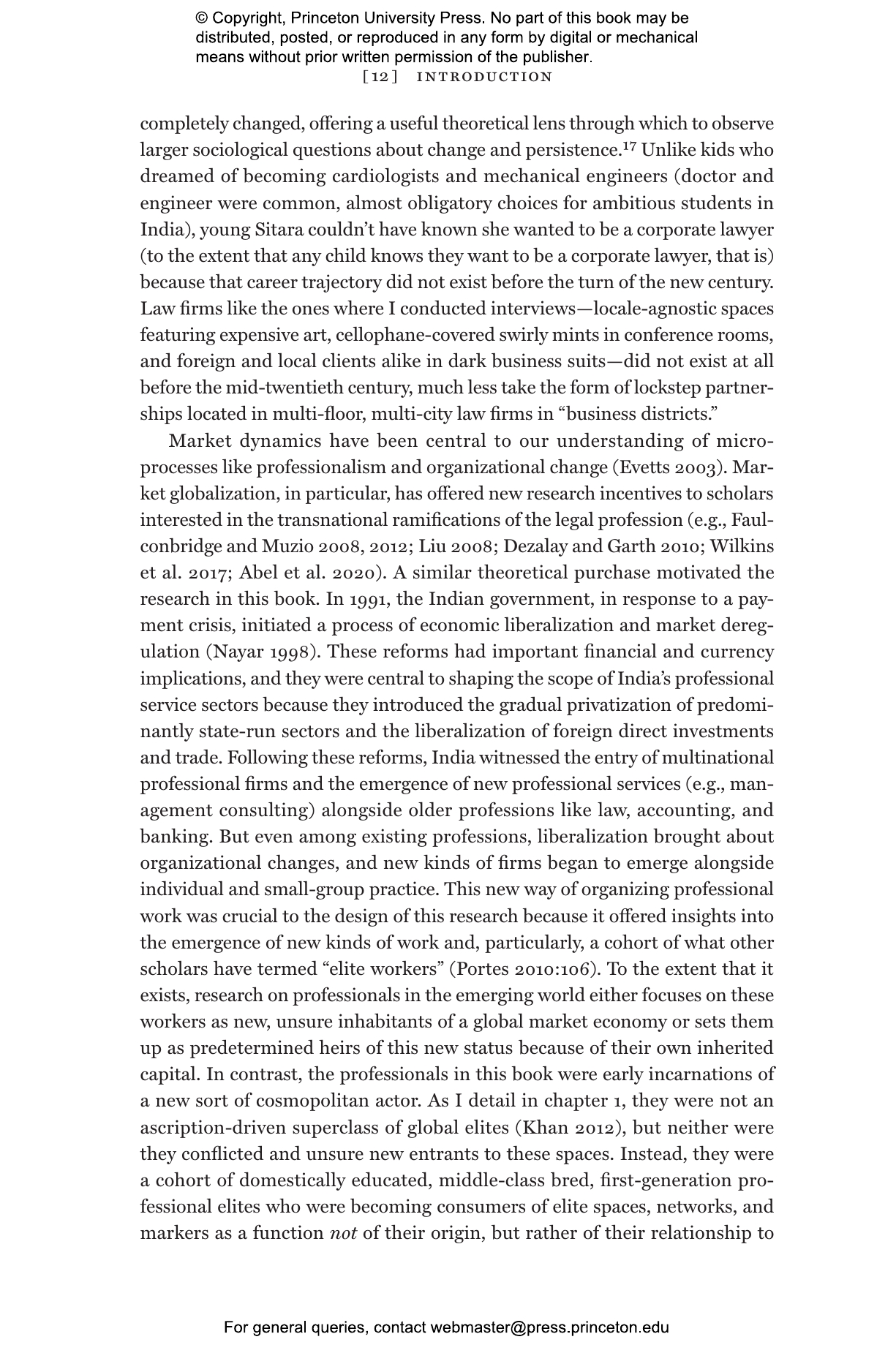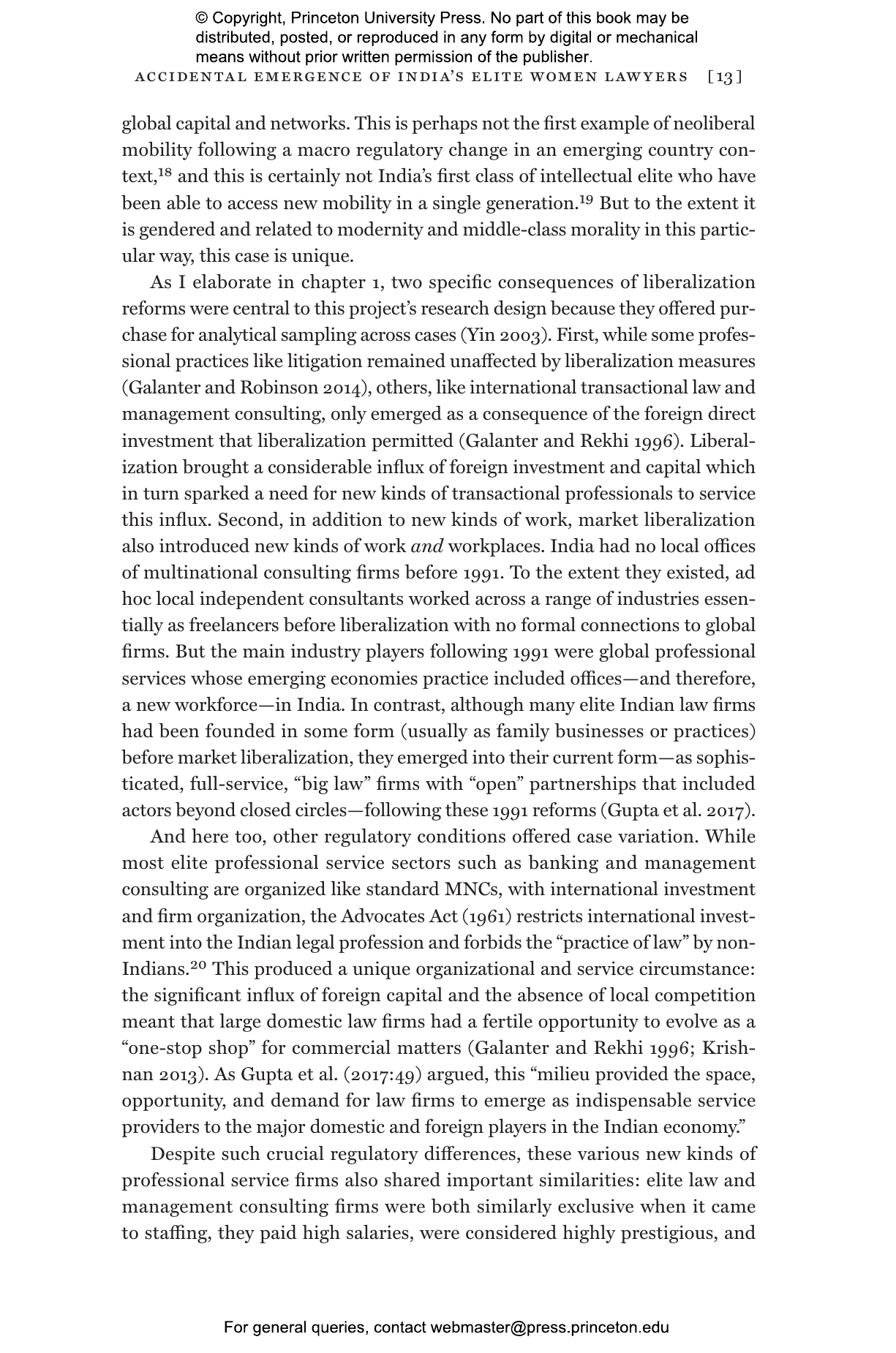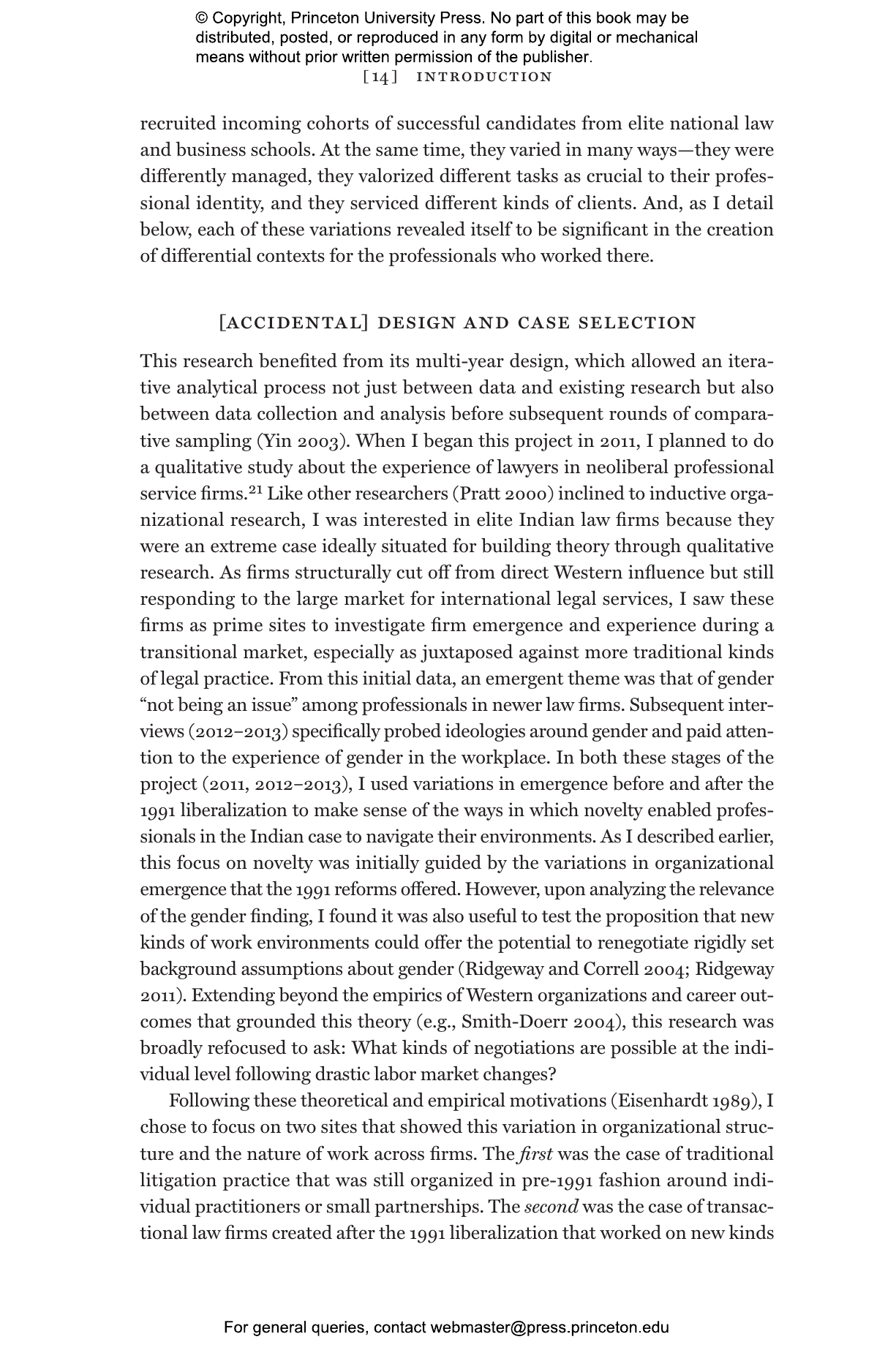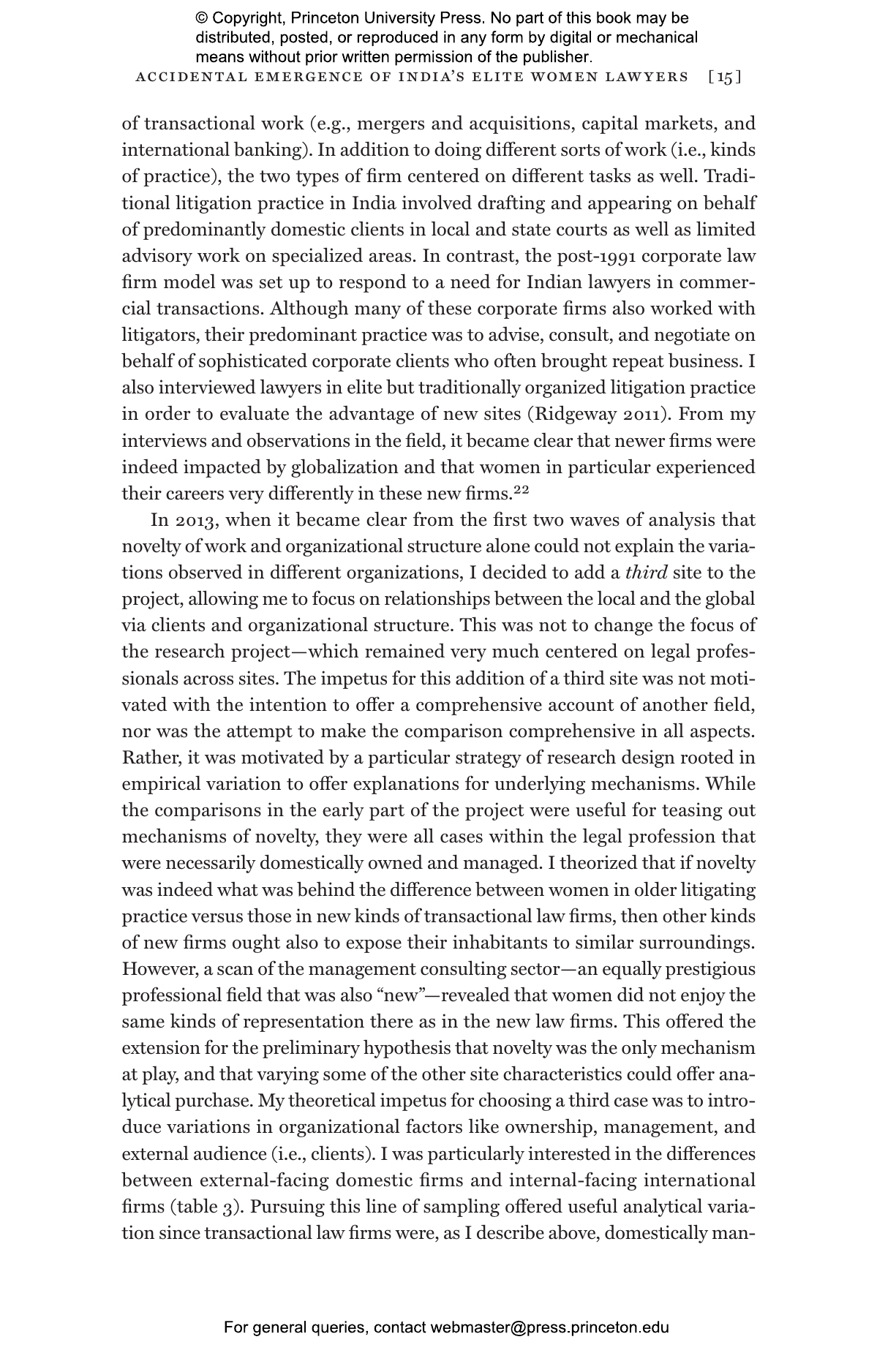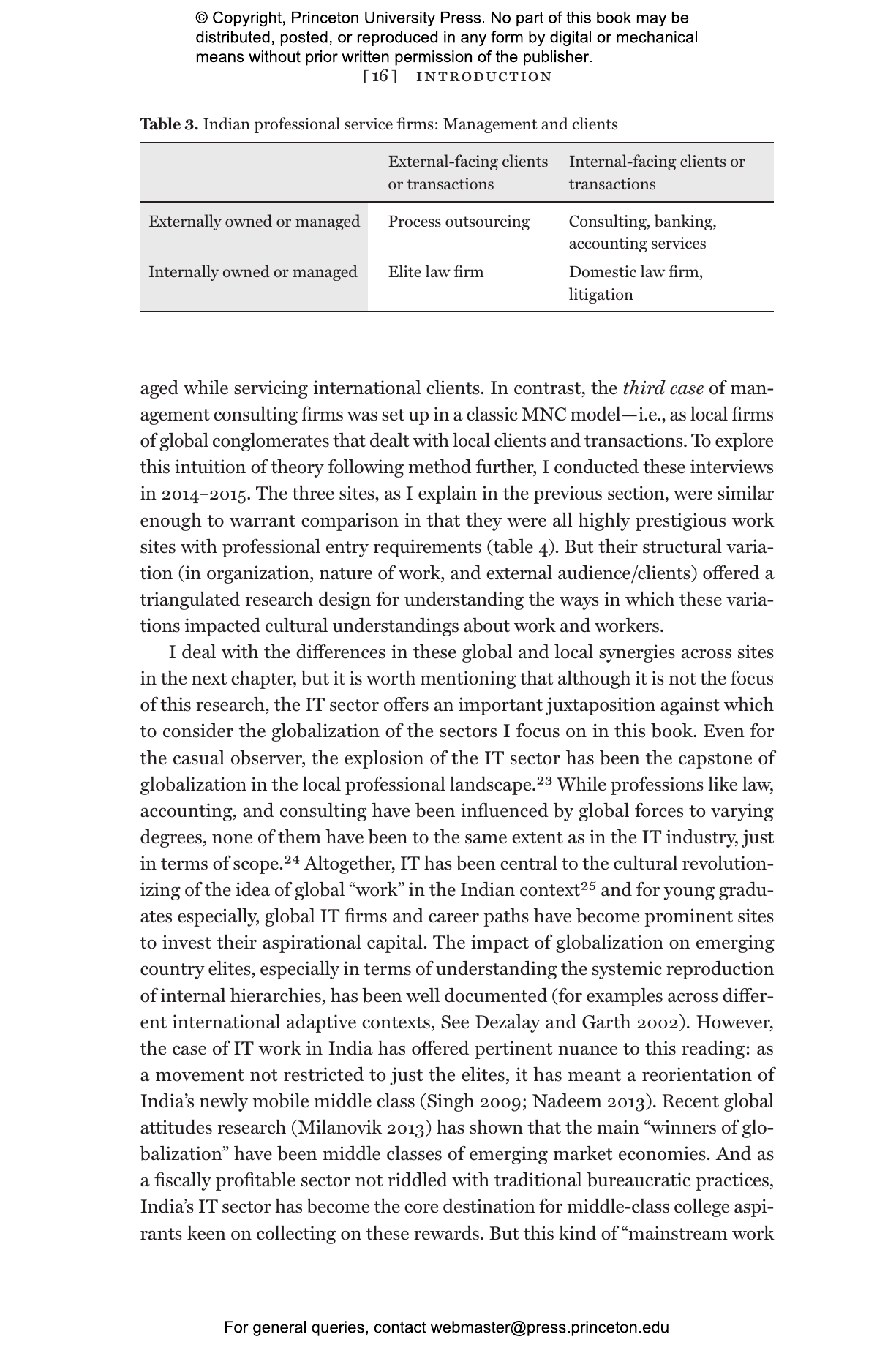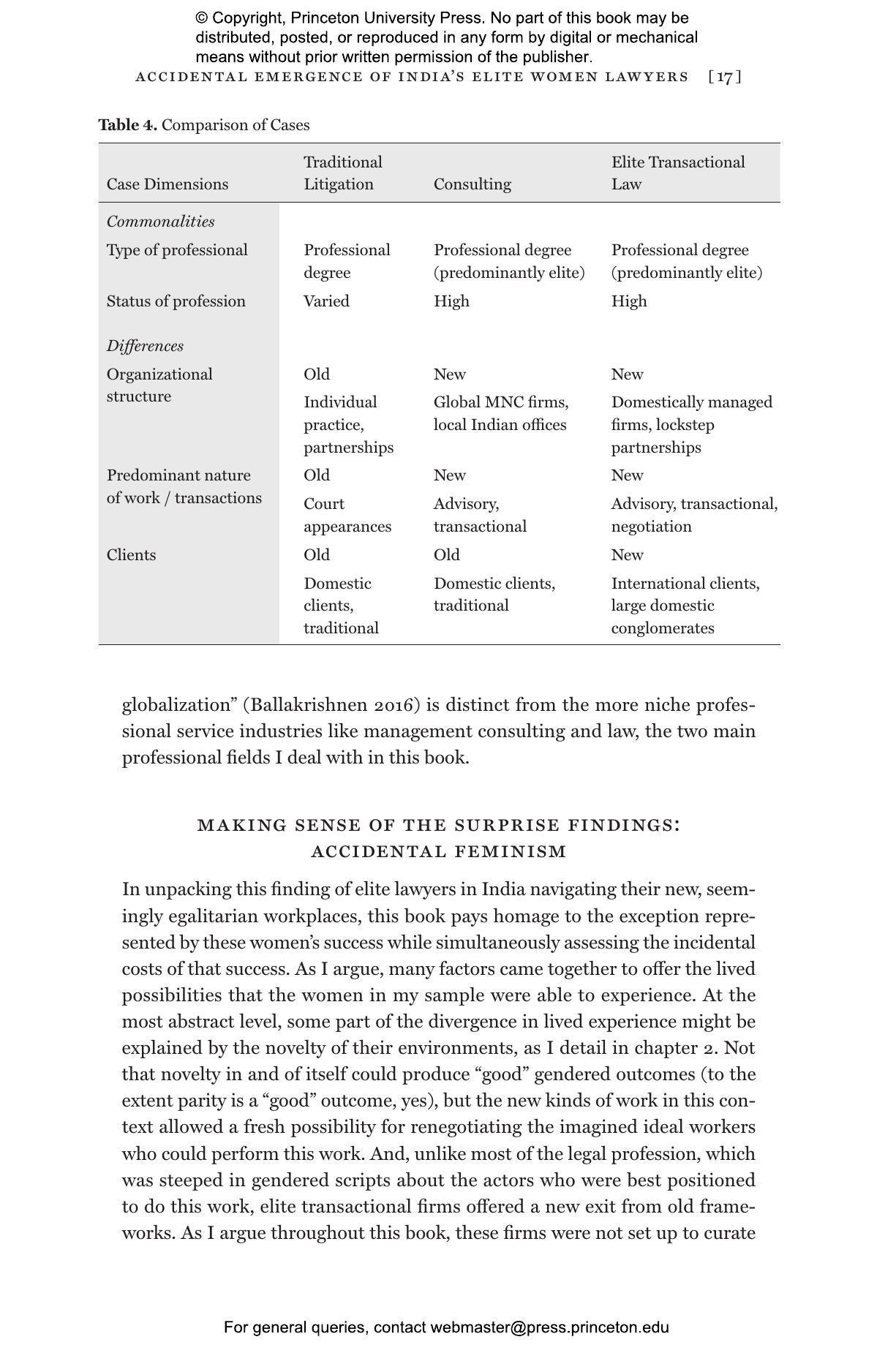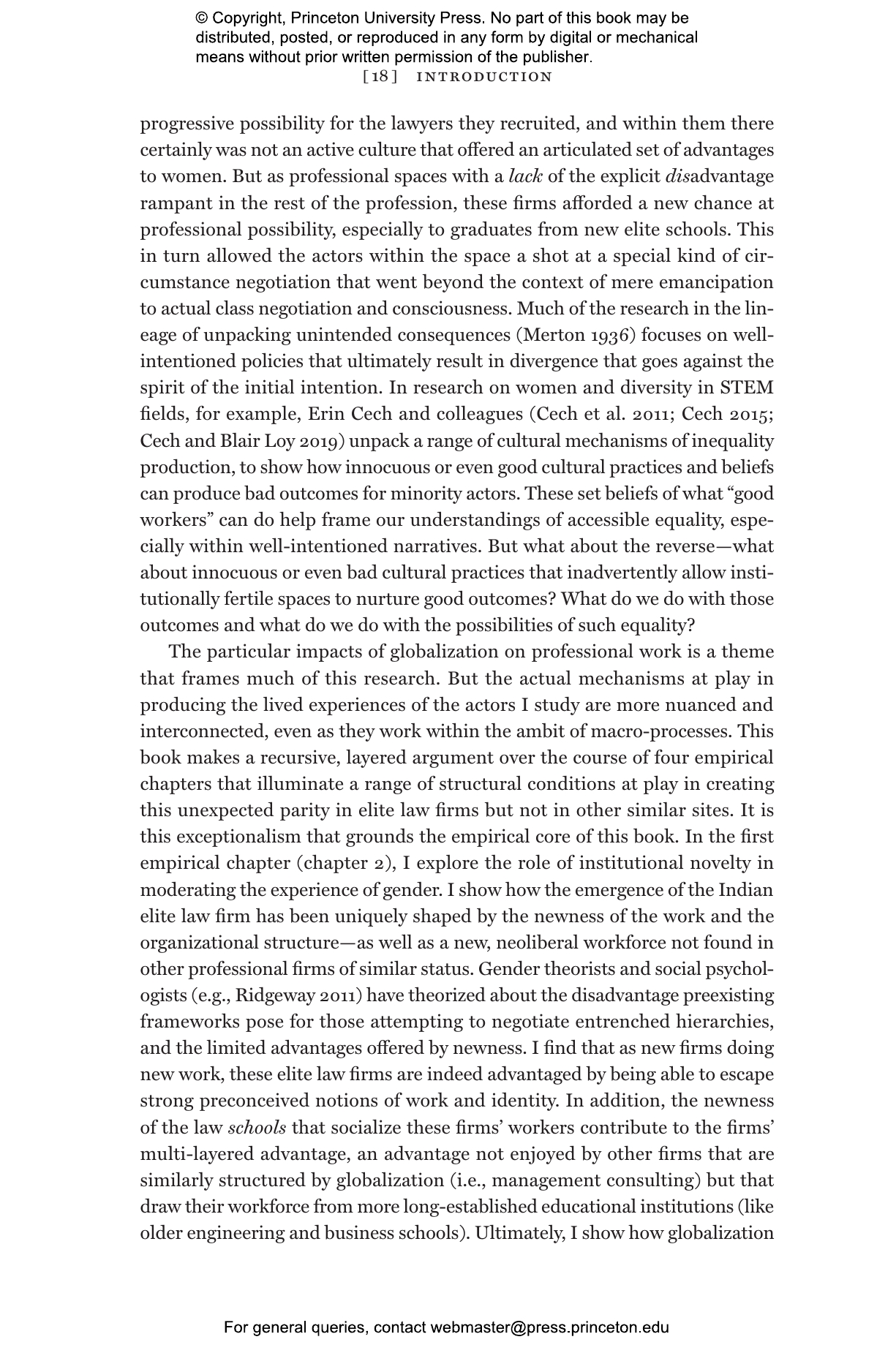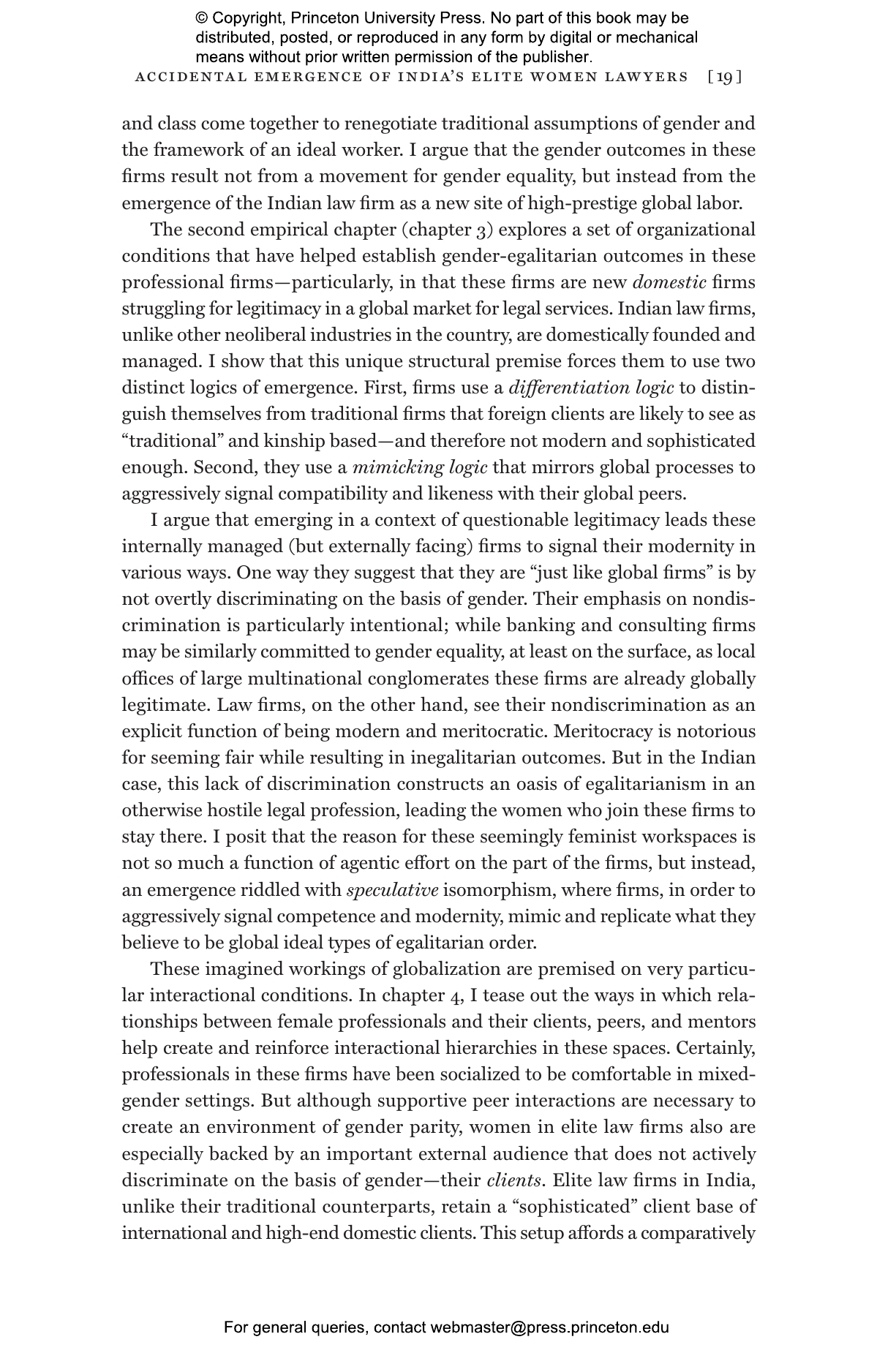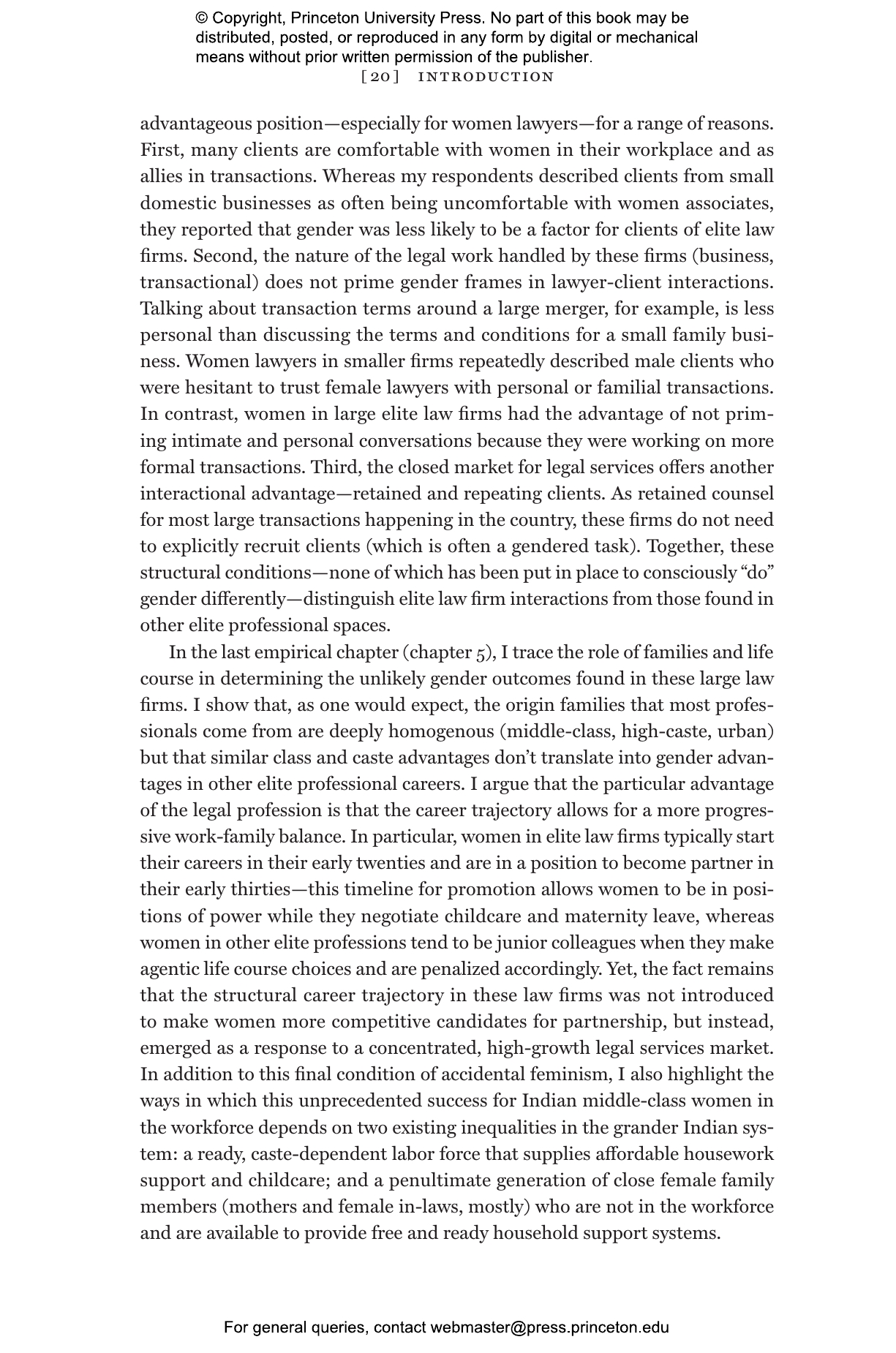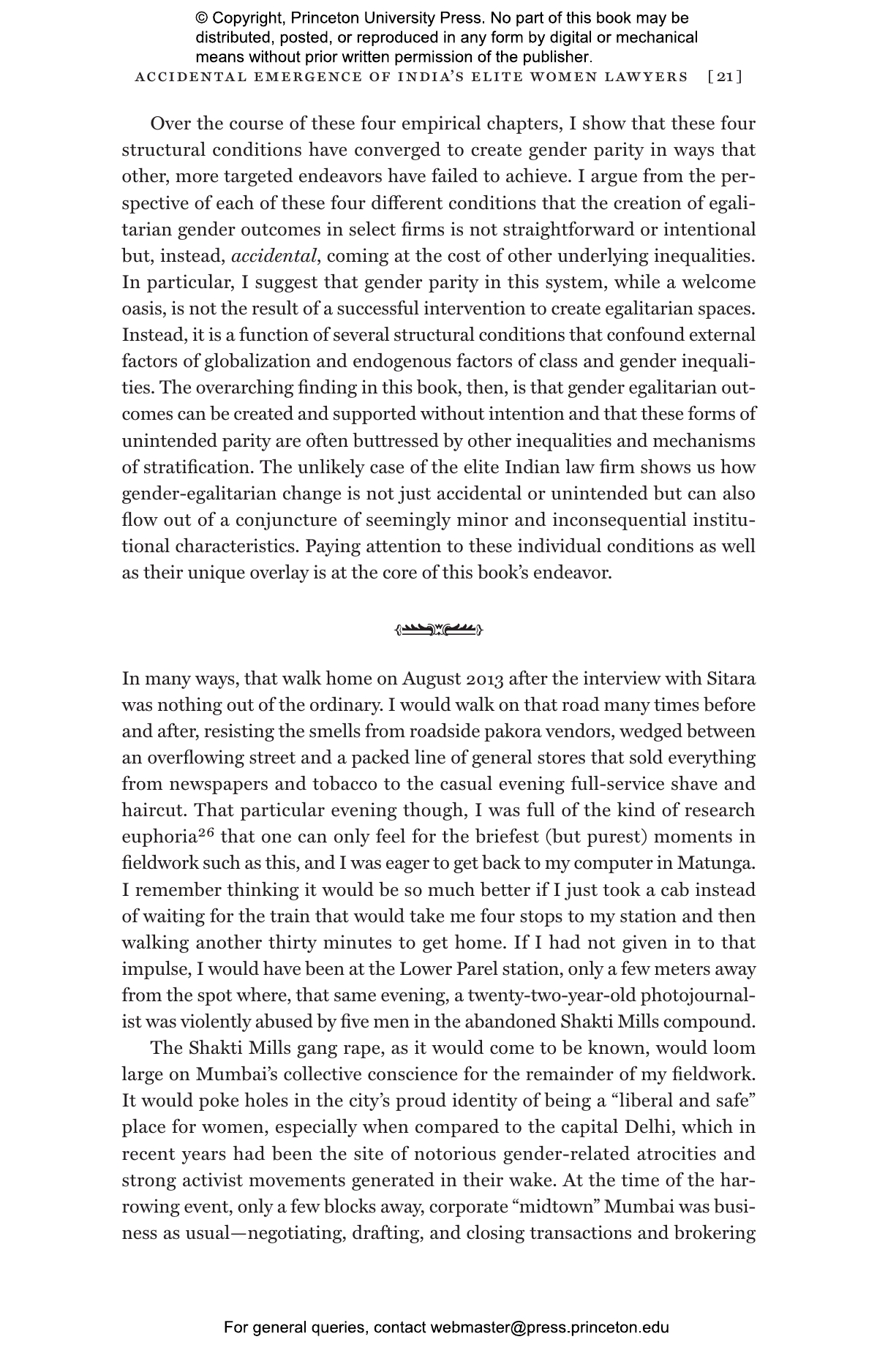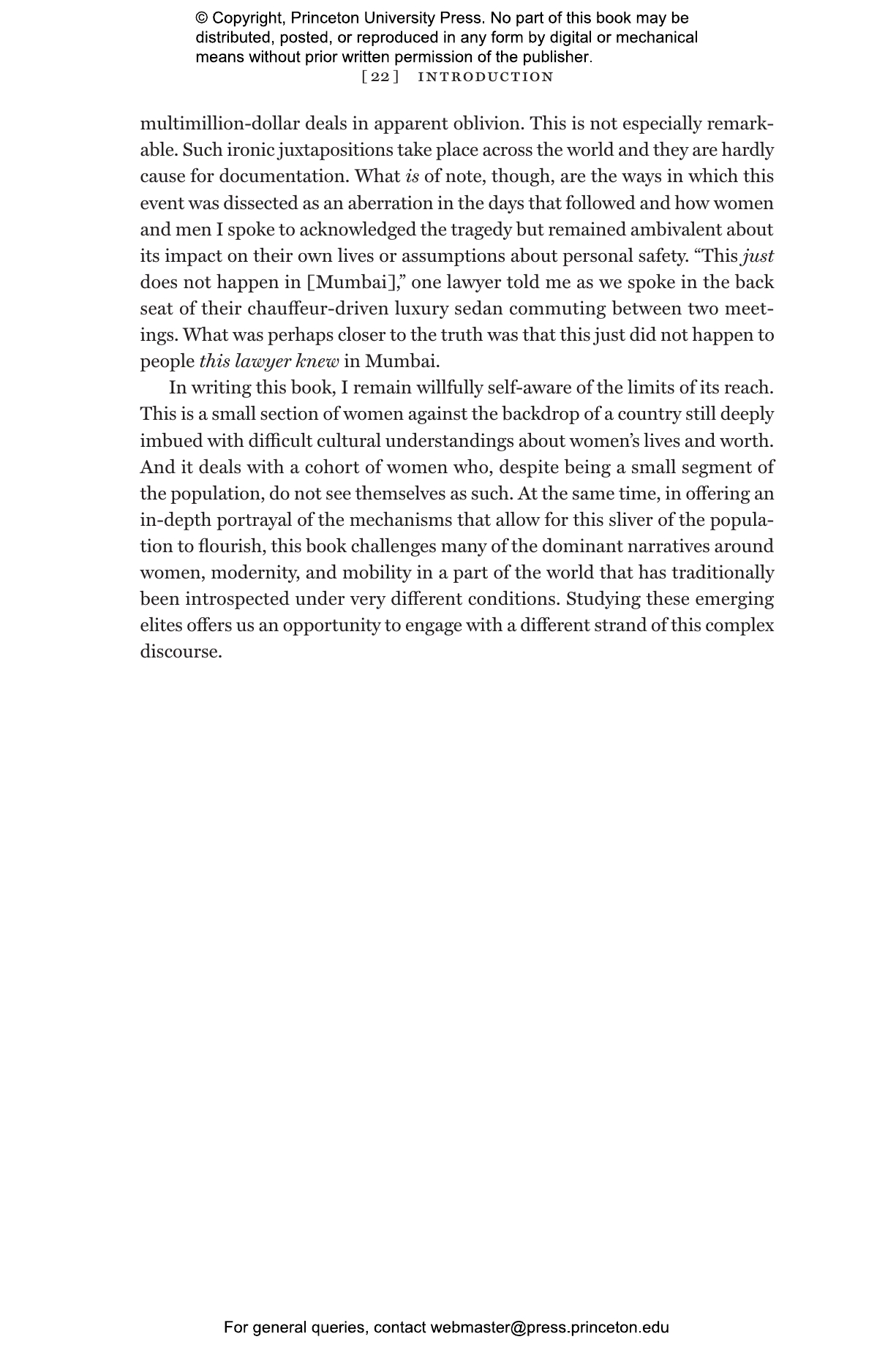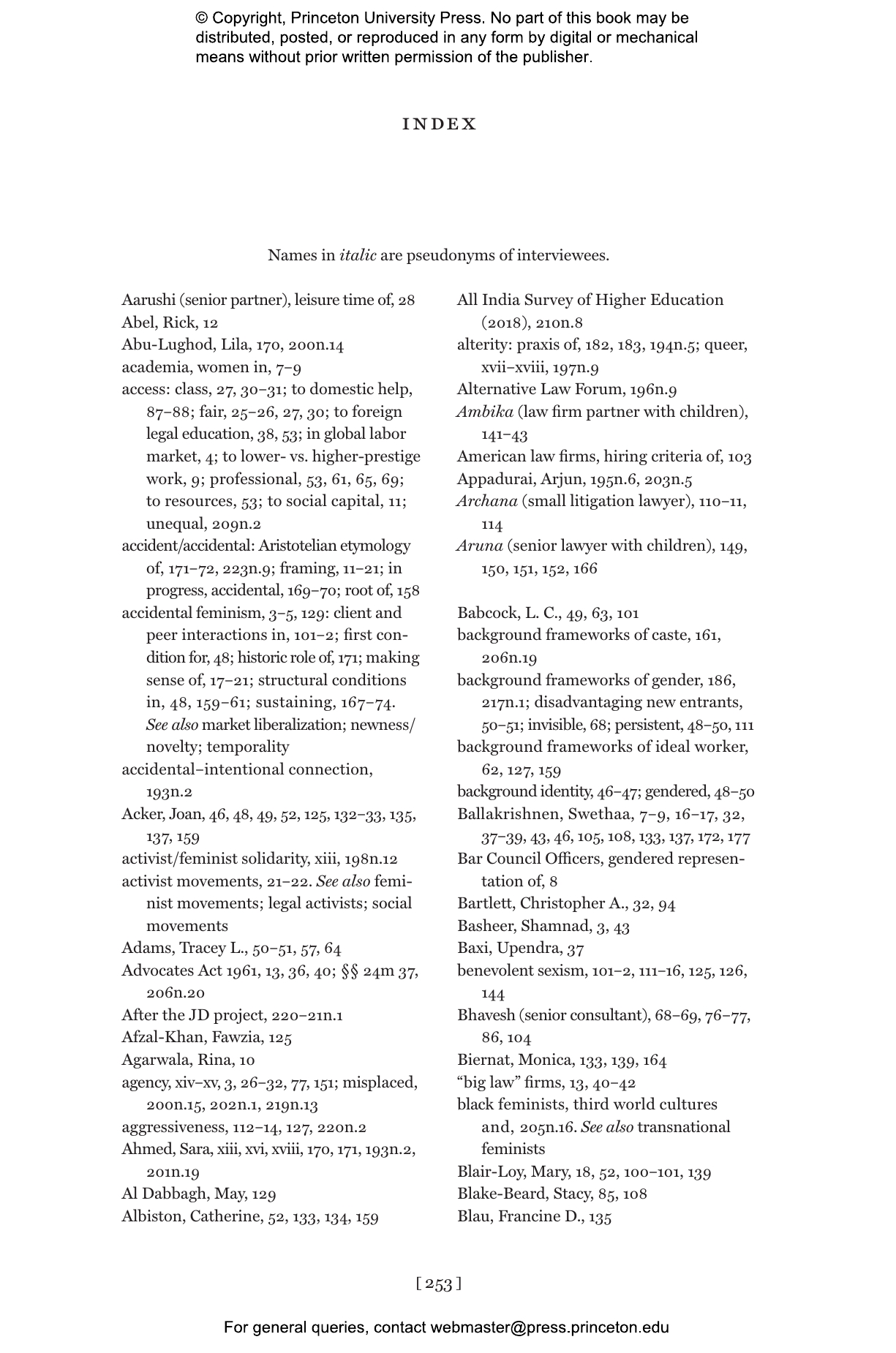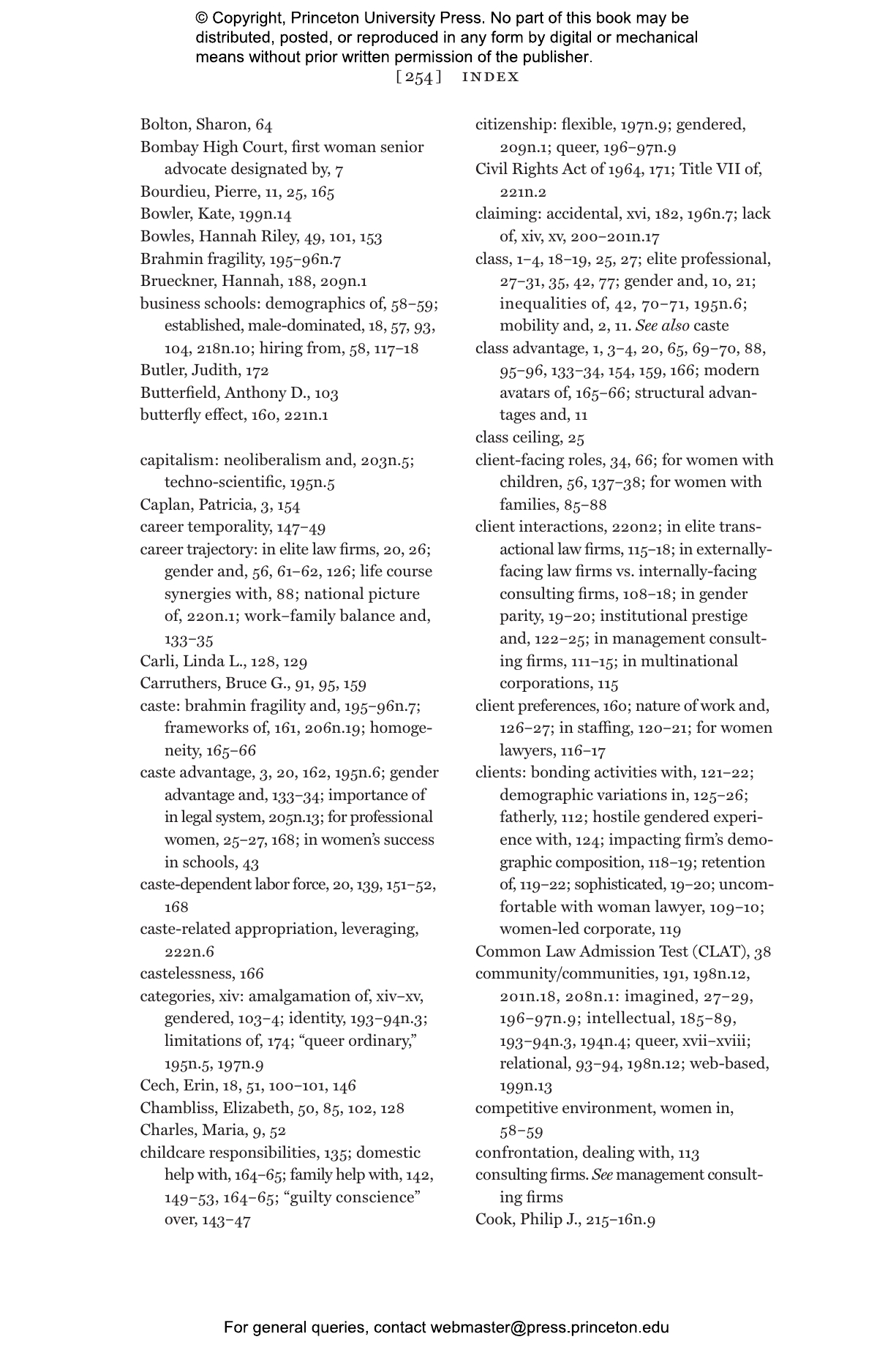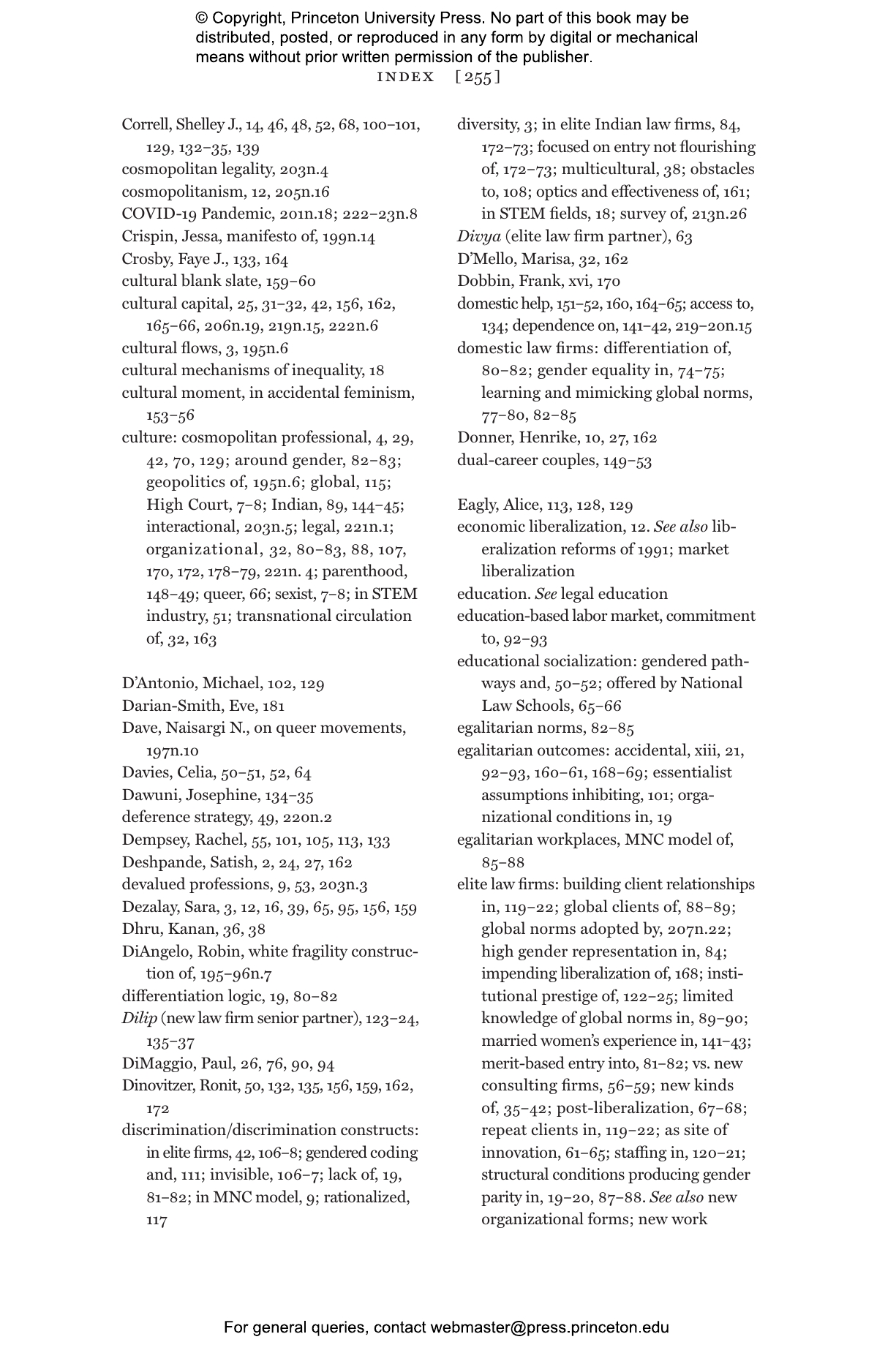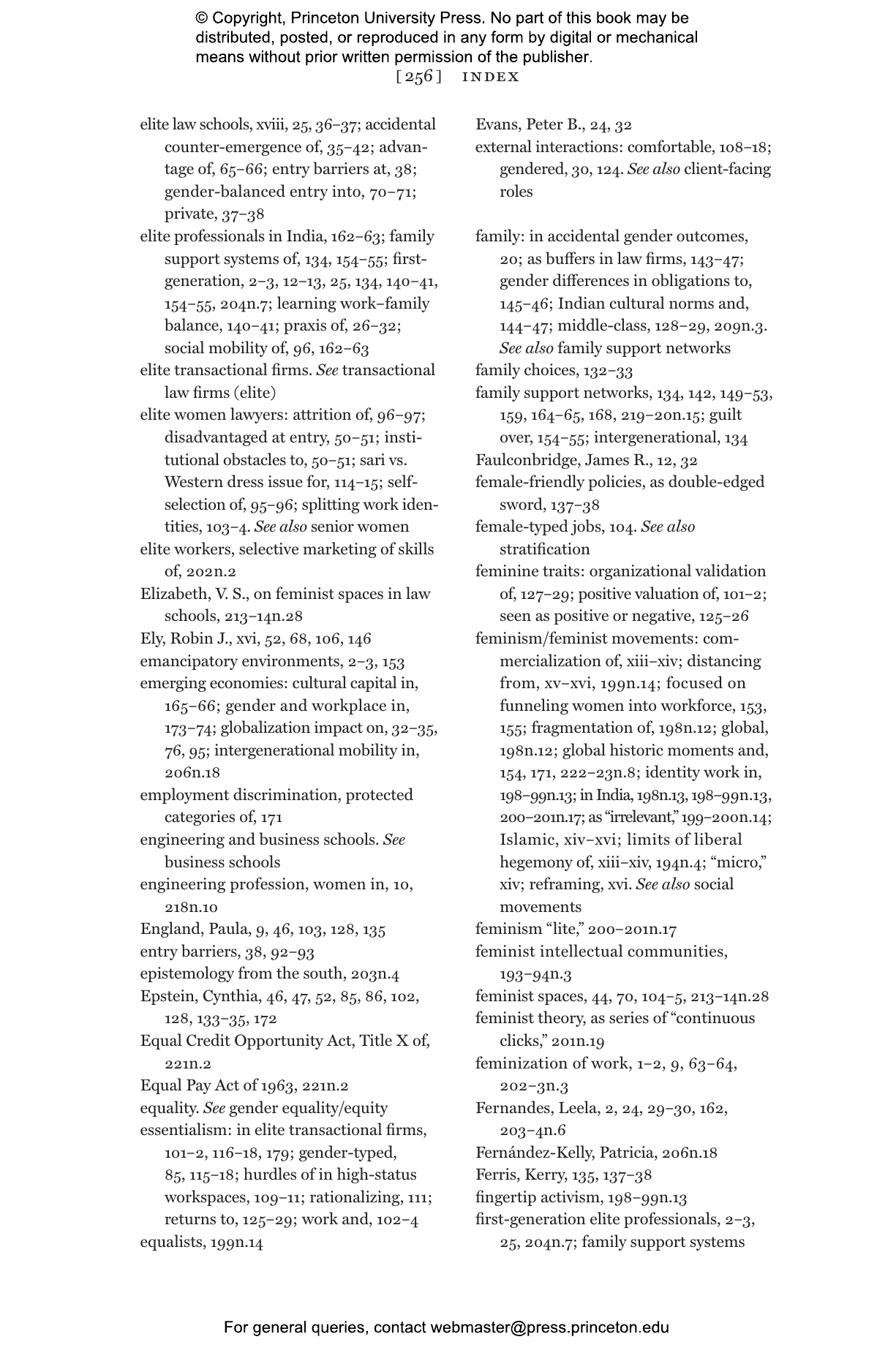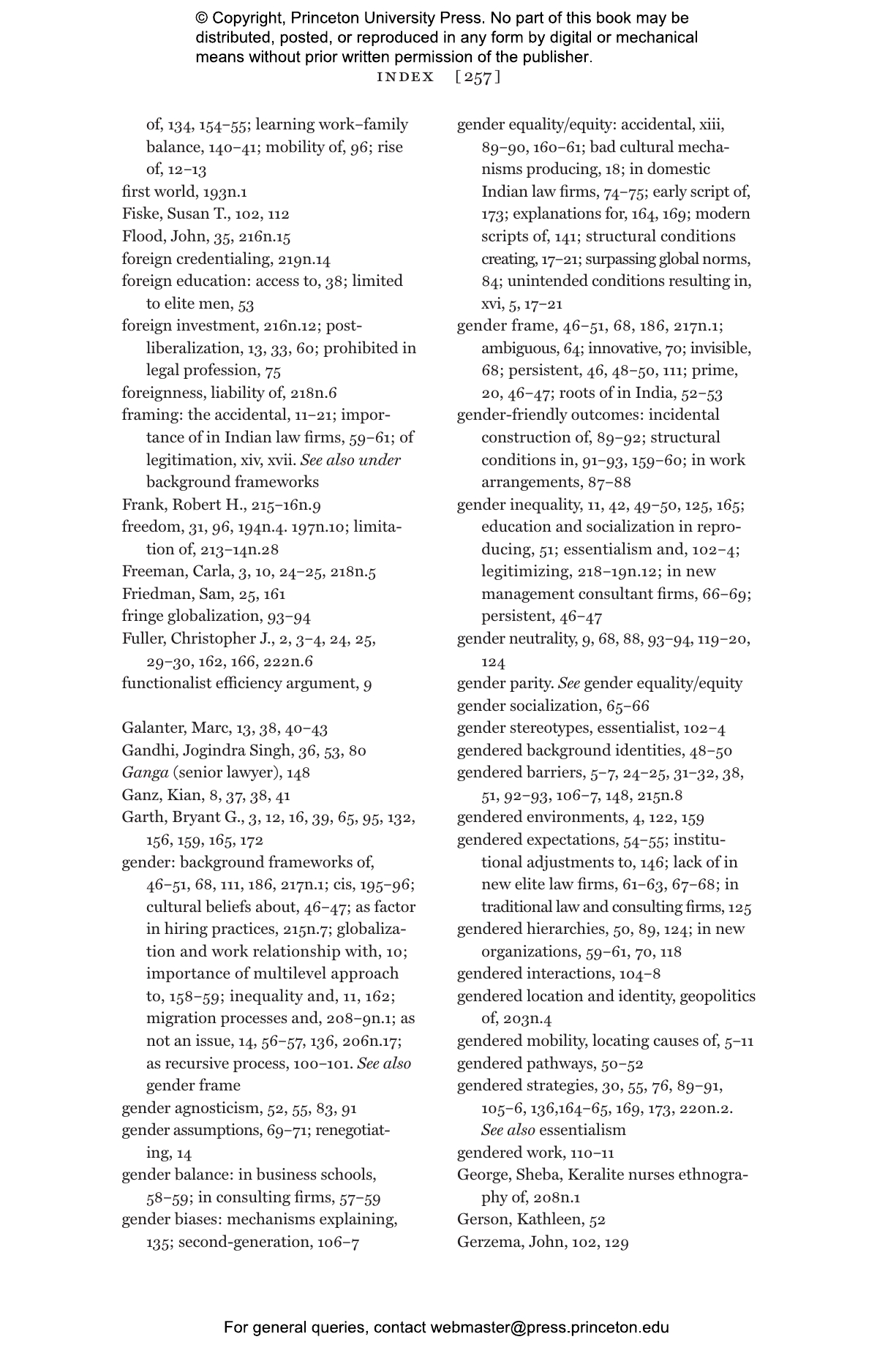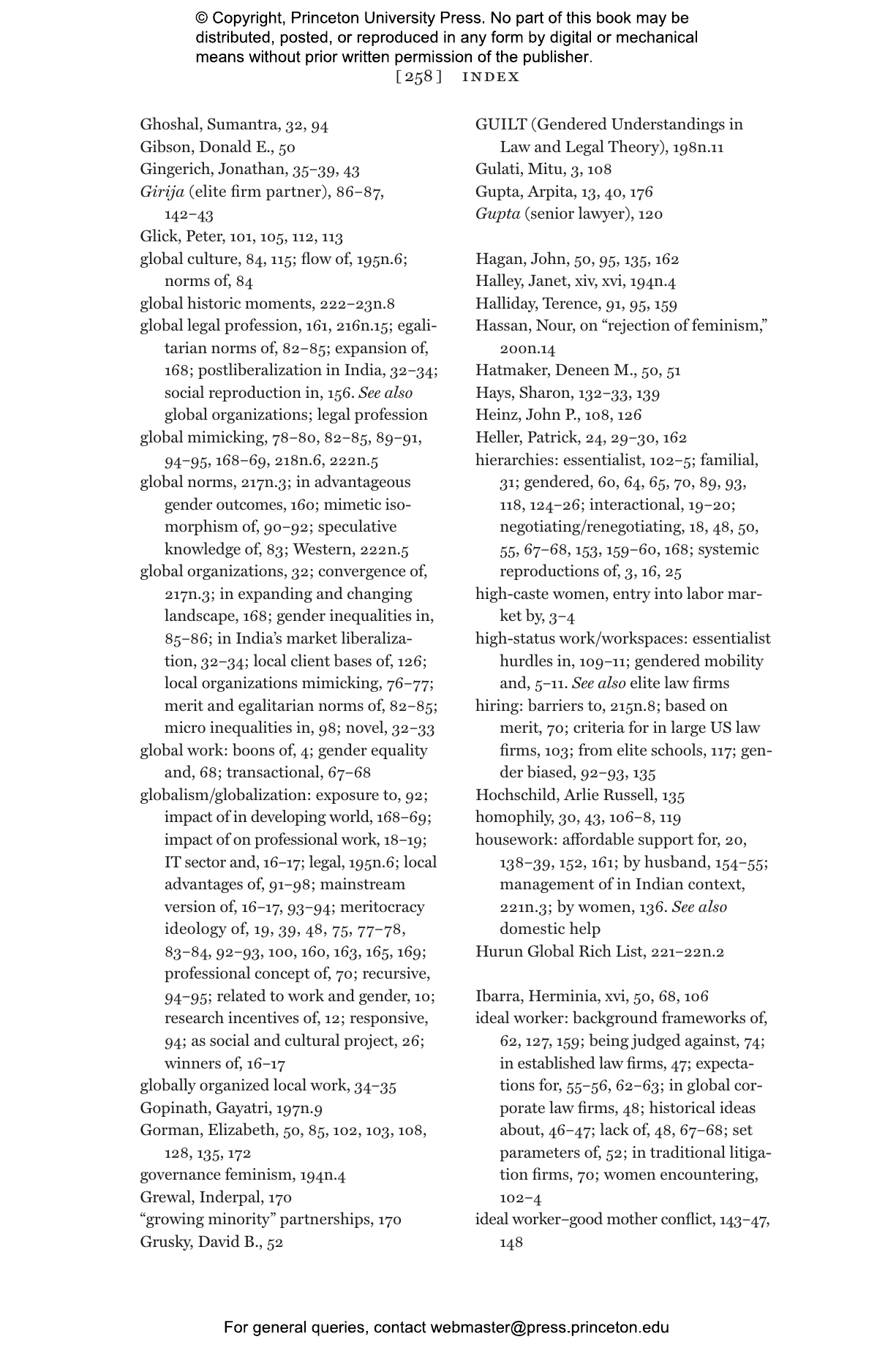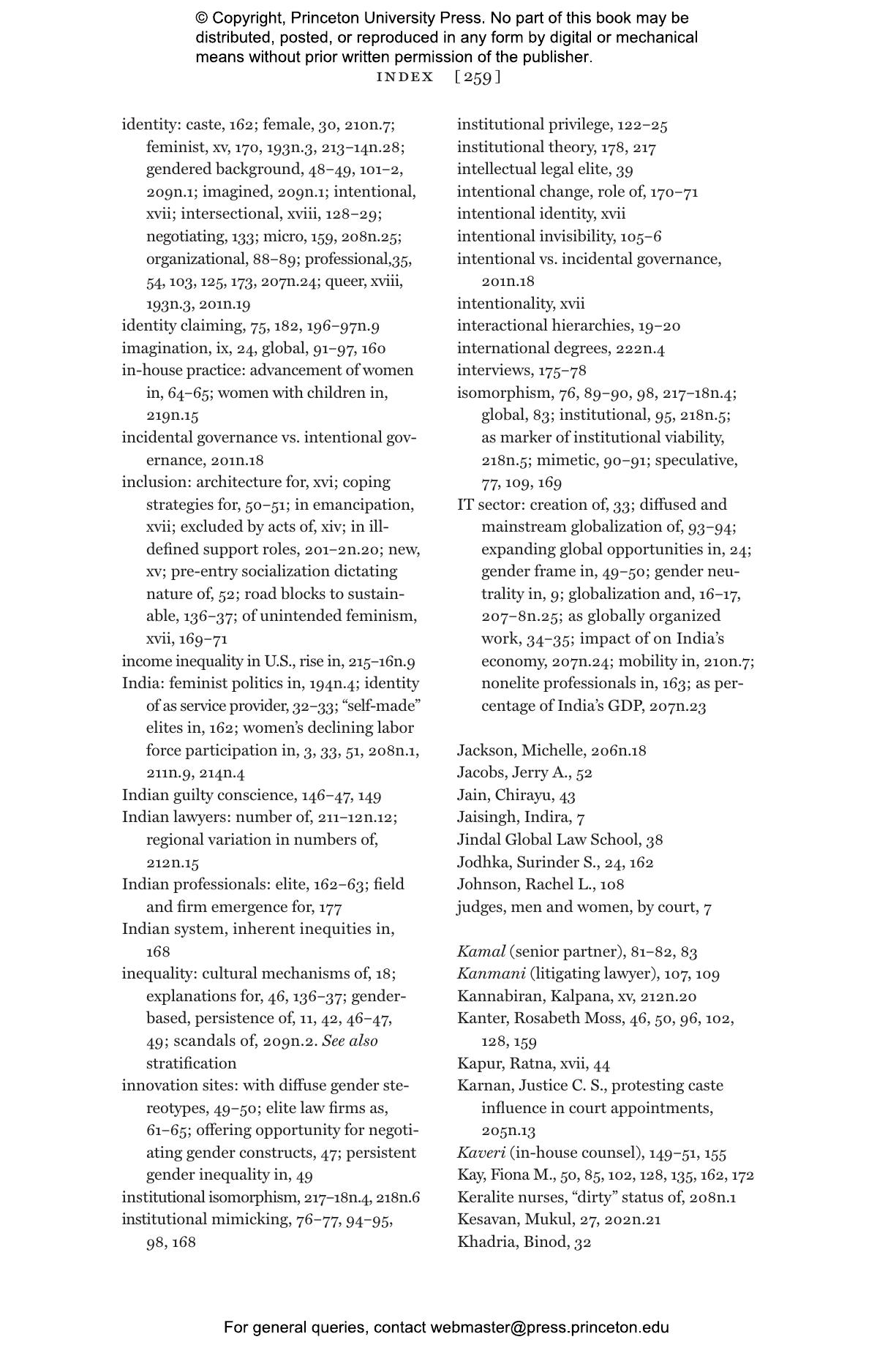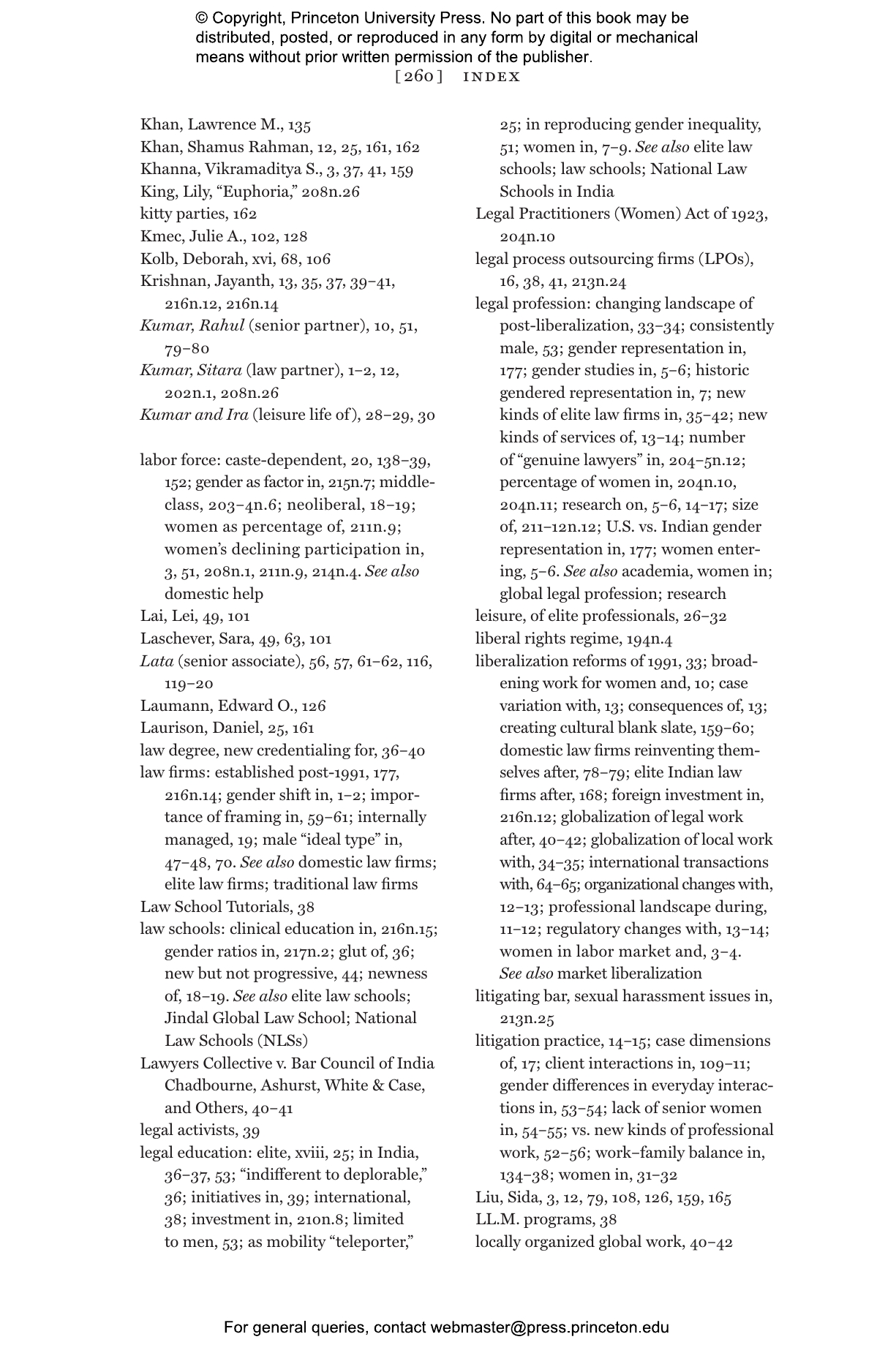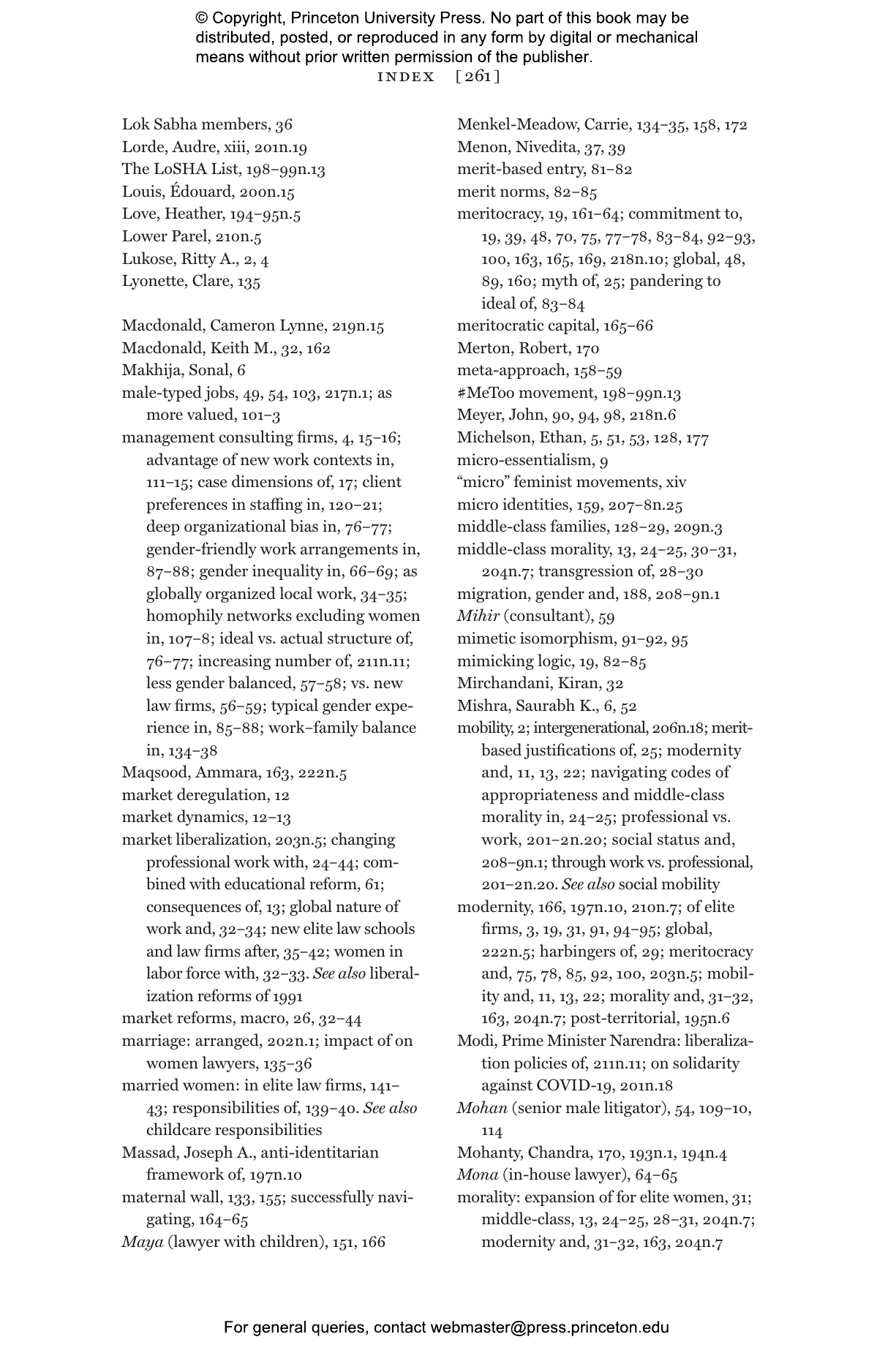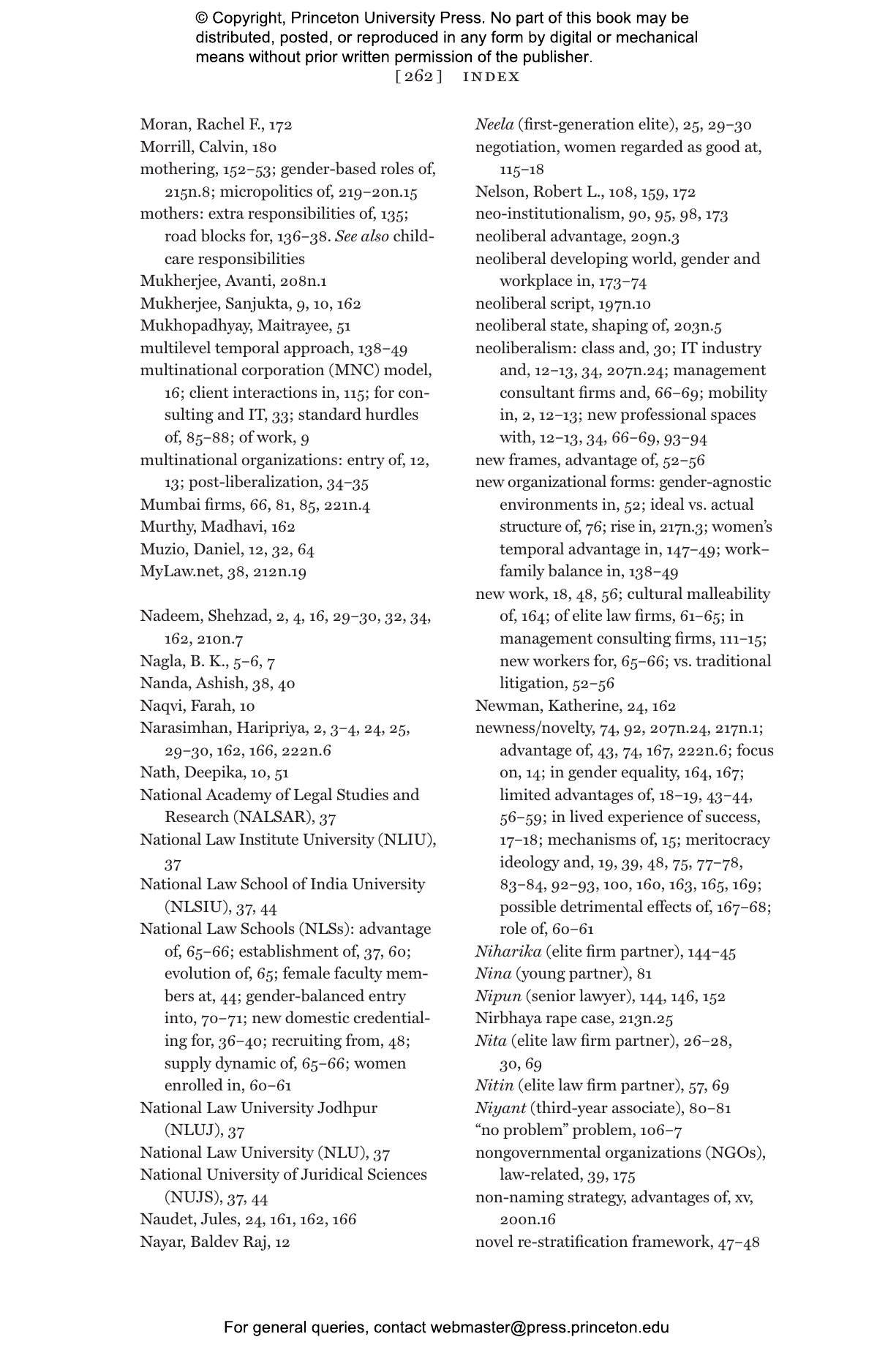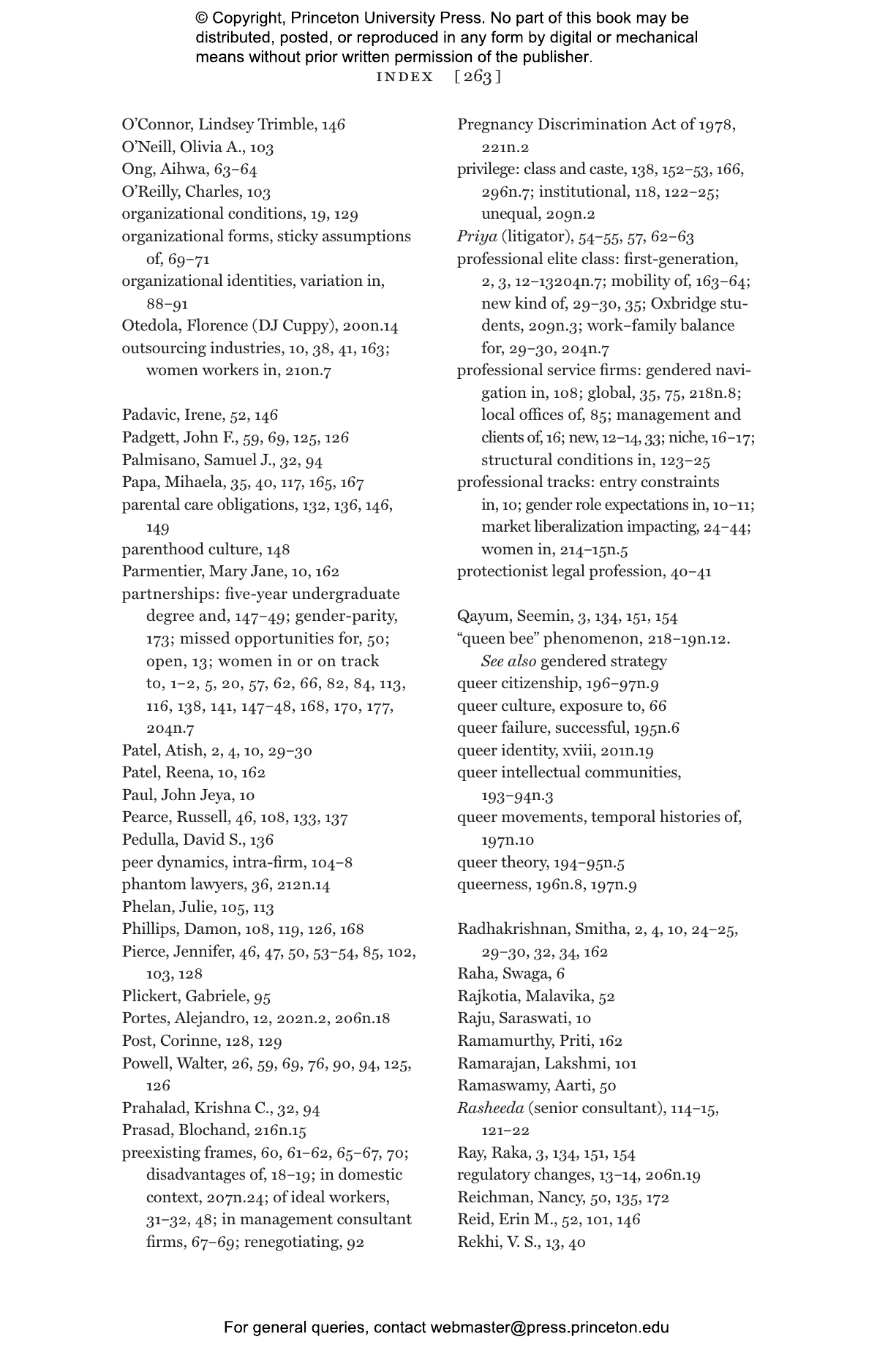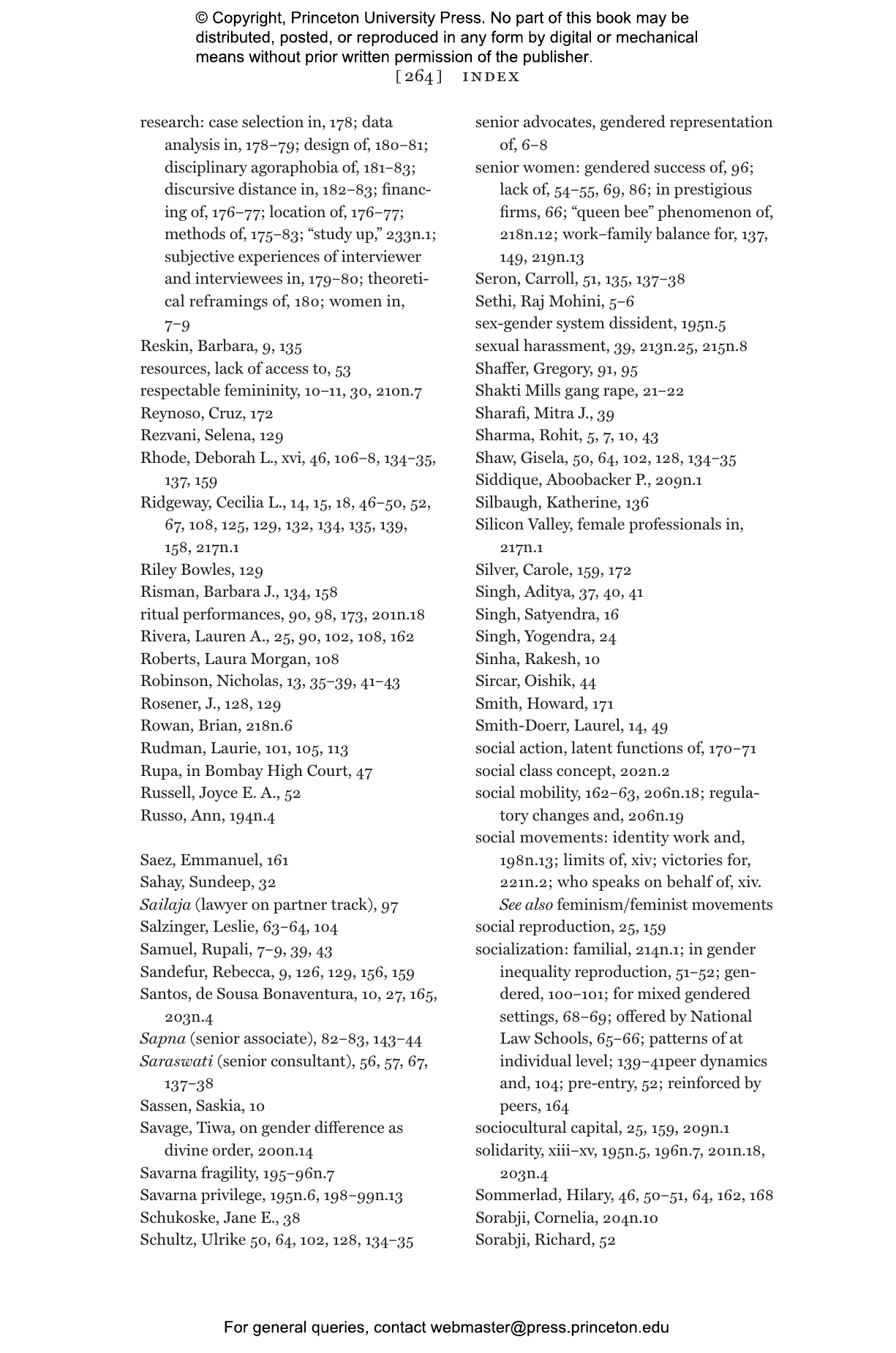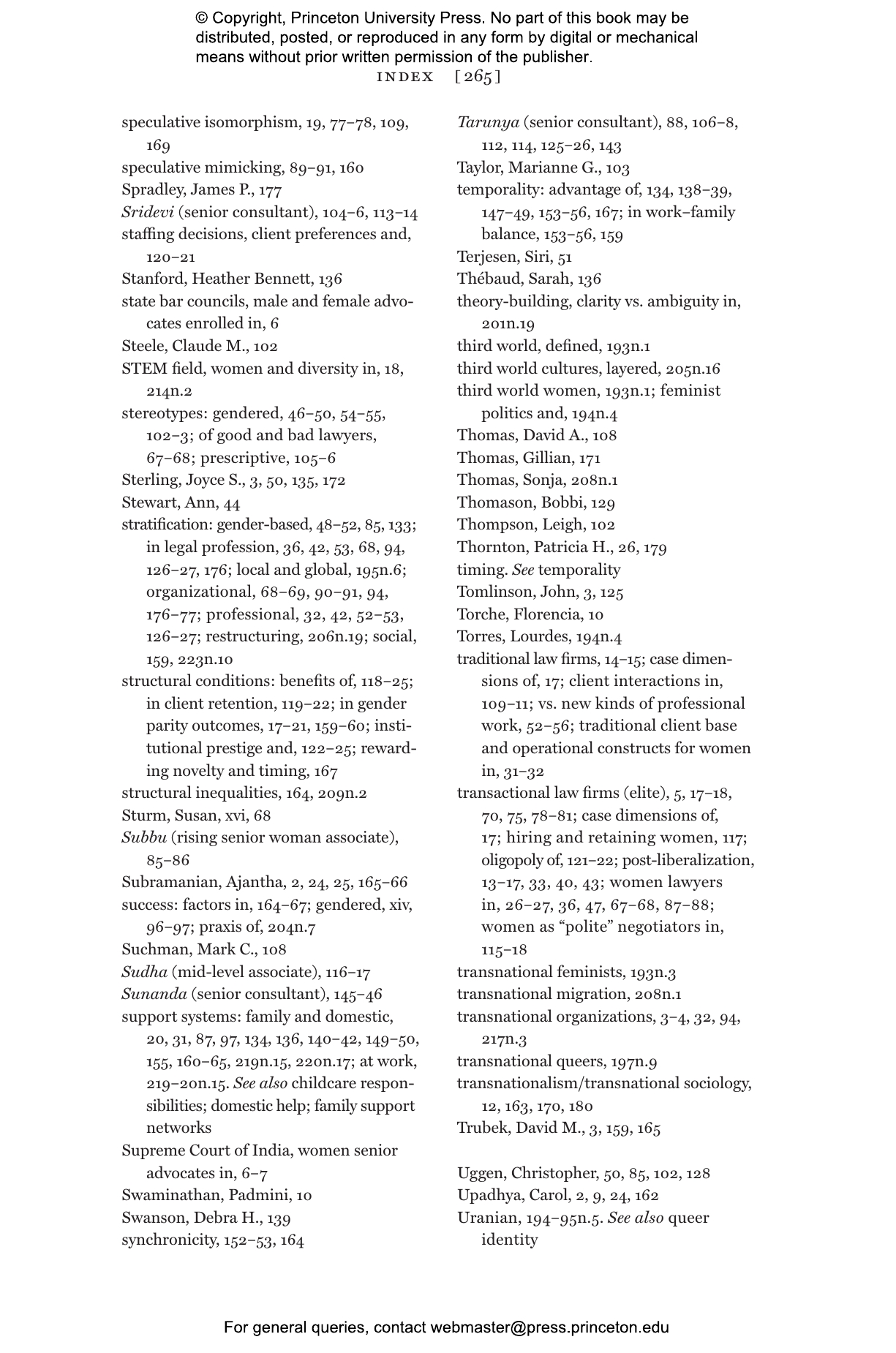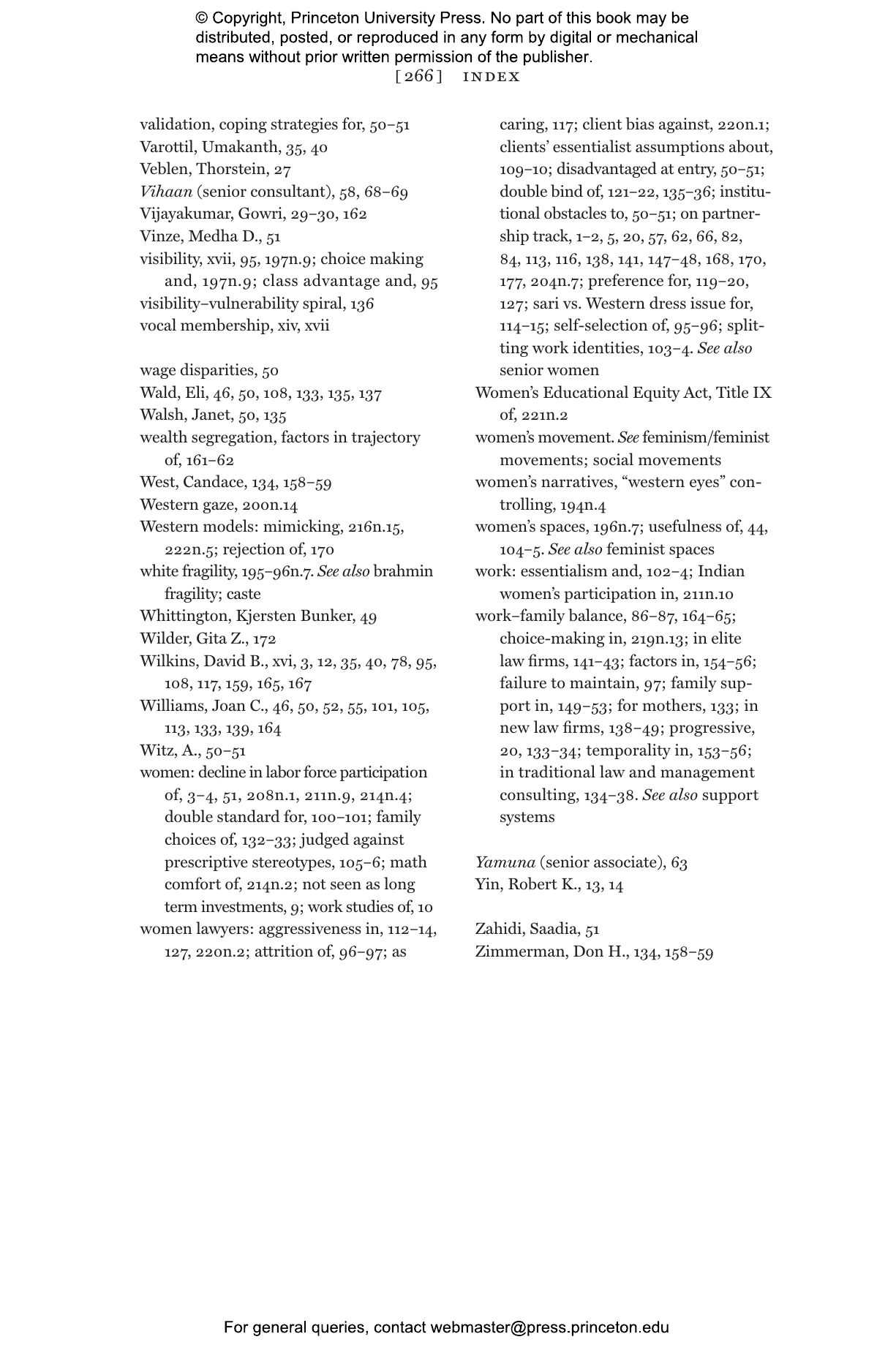In India, elite law firms offer a surprising oasis for women within a hostile, predominantly male industry. Less than 10 percent of the country’s lawyers are female, but women in the most prestigious firms are significantly represented both at entry and partnership. Elite workspaces are notorious for being unfriendly to new actors, so what allows for aberration in certain workspaces?
Drawing from observations and interviews with more than 130 elite professionals, Accidental Feminism examines how a range of underlying mechanisms—gendered socialization and essentialism, family structures and dynamics, and firm and regulatory histories—afford certain professionals egalitarian outcomes that are not available to their local and global peers. Juxtaposing findings on the legal profession with those on elite consulting firms, Swethaa Ballakrishnen reveals that parity arises not from a commitment to create feminist organizations, but from structural factors that incidentally come together to do gender differently. Simultaneously, their research offers notes of caution: while conditional convergence may create equality in ways that more targeted endeavors fail to achieve, “accidental” developments are hard to replicate, and are, in this case, buttressed by embedded inequalities. Ballakrishnen examines whether gender parity produced without institutional sanction should still be considered feminist.
In offering new ways to think about equality movements and outcomes, Accidental Feminism forces readers to critically consider the work of intention in progress narratives.
Awards and Recognition
- Co-Winner of the Distinguished Book Award, Sociology of Law Section of the American Sociological Association
- Honorable Mention for the Herbert Jacob Book Prize, Law & Society Association
- Shortlisted for the Kamaladevi Chattopadhyay Book Prize, New India Foundation
Swethaa S. Ballakrishnen is assistant professor of law, sociology, Asian American studies, and criminology, law, and society at the University of California, Irvine. They are also affiliated faculty at Harvard Law School’s Center on the Legal Profession. Twitter @ssballakrishnen
"Revealing the infrastructural scaffolding and affective registers through which the accidental works its power, this book is an important contribution to expanding legal and organisational sociology beyond Euro-American contexts in deepening readers’ understanding of professional women’s entry into the workforce in India."—Dr Hemangini Gupta, LSE Review of Books
"This is an extraordinarily eloquent analysis of an understudied dynamic: what accounts for progress on pervasive gender inequalities. Ballakrishnen explains why Indian female lawyers in elite firms have achieved more professional success than peers in other fields and countries, including the United States, and offers invaluable insights into the structural conditions that promote gender equity for professional women."—Deborah L. Rhode, Stanford Law School
"Accidental Feminism brilliantly analyzes a remarkable case of how an egalitarian work setting emerged from an improbable alchemy of factors, revealing how inherited advantage and the global legal profession are intertwined. Scholars of gender, globalization, and the professions must contend with Ballakrishnen’s provocative new questions about merit and equality."—Woody Powell, Stanford University
"This meticulously researched book challenges us to consider a simple but unsettling question: If structural forces produce inequality in the absence of intentional discrimination, why can’t these forces ‘accidentally’ produce meaningful, if contingent, equality as well? Rendering visible the determinants of women’s success in India’s corporate law firms, Ballakrishnen rethinks the practice of globalization, feminism, and inequality in ways that will impact our understanding for years to come."—David B. Wilkins, Harvard Law School
"Innovatively and persuasively combining theory and methodology, Accidental Feminism makes a major contribution to the study of gender in the legal profession. The book’s comparative case study method is brilliantly executed and offers a model for scholarship in other domains."—Susan Sturm, Columbia Law School
"Accidental Feminism provides a fascinating, in-depth, and beautifully written lens into gender dynamics among elites in the context of India’s newly liberalizing and globalizing economy. Elite professional women, let alone India’s elite professional women, have received far too little attention, and this unique book fills an important gap in the comparative literature on gender and development."—Rina Agarwala, Johns Hopkins University
